We have had quite the last two weeks at the Kindergarten. The first Friday in June the special Tatar summer holiday of Sabantui. To celebrate the coming of summer in our own special way all the children of the Kindergarten sang traditional songs and played Tatar games outside; This more casual than usual pageant was enjoyed by the kids and their parents alike.
The end of the school year is beckoning near---but that doesn’t mean that Miss. Samantha and the two English language student cohorts have taken their summer holiday just yet! The most important aspect of our Kindergarten beyond genuine student enjoyment and learning is being able to generalize our knowledge outside and within many contexts. It is also important, especially for our younger cohort, to keep subjects studied practical and relevant to their everyday experiences. What a better subject to end a great school year with then the five senses and parts of the human body?
The first week both classes focused on the upper half of the human body. The Kindergarten group truly love colouring and worksheets and so for them flashcards which they could take home and share with their families. Focused on vocabulary included: hands, arm, face, hair etc. While the pre-school cohort was exposed to the flashcard vocabulary their learning came directly through our song of week one: “Hands, Shoulders, Knees and Toes.” To say students enthusiastically and quickly learned this song would be an understatement!
In an effort to put this song (or part of it) into a tangible form each student in attendance did a cooperative drawing with Miss. Samantha individually…what does this mean? Miss. Samantha drew their portrait (the pre-k crowd has neither the fine motor skills or the attention span yet to do the entire thing alone) but the student dictated what colours, drawing styles they wanted their portrait to include. They also indicated different parts of their drawn face in English. The Kindergarten cohort, enthusiastic, drew their own and with only a little help from the teacher copied the English words for themselves! Needless to say these drawings are adorable and will be a keepsake for families.
Our second week in this unit found us focusing on the lower half of the body. Here vocabulary included foot, leg, toes, hips etc. Our song of the week: “The Hokey Pokey.” Defying the expectations of Miss. Samantha all students appeared to love and pick up the language and motions of this song quickly. What is perhaps more impressive, is that the younger cohort learned right from left whereas the older cohort did this too and began singing the song to themselves! This indeed is learning for meaning in action. There is no need to pressure children into learning within the confines of timeframes or absolute expectations.
Taking a cue from Reggio Emilio learning framework earlier in the week after learning and practicing the lower half of the body parts, students were asked to trace their own foot and decorate it anyway they want. Paints and markers were provided without any ‘artistic borders.’ The point of this project beyond simple creativity was to allow the student to engage with their work while also being open to teacher ideas/suggestions. For the younger cohort this also gave us a chance to practice our counting.
Two members of the Kindergarten cohort took a huge step this week! During a combined levels class they became a great example to their younger cohorts by taking on the teaching and instructing role during circle time! It was truly wonderful to see students helping and sharing with one and another in their learning! Great job Malika Z and Amina!
To say that staff and students prepared for our final end of the year pageant and Kindergarten graduation would be an understatement! Students rehearsed no less than fifteen Russian, Tatar and English songs, poems and monologues for this special occasion and their arduous work is very appreciated! What follows in this journal entry is a summary of the show that took place on June 1, 2012.
Among several Russian and Tatar songs students in the Kindergarten and Pre-K cohort sang “Old MacDonald” had a farm. For our younger students the focus here was on learning the phonetic sounds associated with each animal such as ‘Quack Quack’ for ducks or ‘moo’ for cows; older students to gain a natural, comfortable fluency in singing.
Three of our wonderful students this year are graduating from Kindergarten and all their achievements had to be acknowledged. For their English language sector students received a diploma, big bar of chocolate and rose. They also received wonderful gifts from all staff at Sadek.
Malika S, Malika Z and Amina you are all wonderful students and we all wish you the best in the future!
Welcome to another journal entry at last! In this special two part entry we will review what both the Kindergarten and Pre-K classes have been up to since mid May from an academic standpoint and our final school pageant.
In short the three following weeks before our end of the year celebrations saw a massive review in all classes covered up to our current unit. For the older cohort this meant paying particular focus on the family, pet and animal based units. A great deal of time was also spent checking phonic comprehension. As is illustrated by our weekly lesson plans each week we focus on a new letter.
While it is true a few students in the Kindergarten class do know their Russian and English alphabet from A-Z---they merely know the order not the various sounds each letter can not create nor can they name many words that begin with any particular letter outside of what we have studied thus far. This tendency is simply not good enough and an example of the pitfalls of rote memorization over learning for meaning. Much to the enthusiasm students, however, we began using special sensory flash cards (a gift from a great parent) and matching them to their corresponding first, second and last letters. This encouraged a deliberate thought process and attention to detail.
As we are in a state of review in regards to vocabulary students in the Kindergarten section were also allowed to apply what they had learned to their favourite past-time: colouring. It was particularly important during the high tension weeks before the pageant to give students a space to enjoy their school day and learn at a reasonable pace.
Students in the pre-K cohort also took this time to review materials. It should be noted however that their review went at a much slower pace and focused on only few key topics rather a wide breadth of information. Topics reviewed included: the shapes, immediate family member names, pets and familiar songs such as ‘Twinkle Twinkle Little Star’ and ‘Mary had a Little Lamb.’ It became a priority in their English language time spent with Miss. Samantha to allow this group to experience as much pressure-free, free choice play in possible due to the fact that in their Russian and Tatar sections they were memorizing whole dialogues and several songs (quite the feat for any three year old!)
Remember our beautiful indoor garden? With the full transition to summer and the reality that our little plants were growing leaps and bounds outside of their containers, together with staff, our little flowers made their big debut in an outdoor garden where they can continue to thrive in nature and be enjoyed by the children everyday.
Greetings!
In this our final week of focusing on the theme of Spring students were particularly expressive! Our classroom has many important points of focus such as English language aquistion and usage as well as play, nonetheless, as a Kindergarten our first and foremost important task is to encouage students to be creative, expressive and independent thinkers. Drawing heavily from Reggio Emilia pedagogy which asks learners to express what they see, feel and think through art this week we accomplished a lot of visual art projects tying them directly back to our unit theme and associated vocabulary.At this stage most pupils are very comfortable in gerneralising their English language abilities to do this.
In our Kindergarten and Pre-K cohorts students completed two notable pieces of visual artwork. In drawing and creating a rainbow students were deliberately given only the primary colours and knew that if they wanted to create variations such as pink, green, purple they would need to know the necessary combinations. We reviewed and talked about this as a collective during circle time After students had a decent idea what they would need to do in order to acheive certain colours my role as an teacher was to allow them to be as individual and creative as they wanted. The results of the rainbows were quite diverse! Our pre-k group also took part in this activity, however, placing the need to blend primary colours to create secondary, students were given a varied water colour template to work with; unlike the older students the focus here was on meaningful usage and recall of the taught colours.
Another intresting bit of art work created later in the week were our ear-bud cherry blossom (and other vocabulary) dot paintings! Miss. Samantha has been fortunate enough to live in Japan where the blossoming of gorgeous cherry blossoms unmistakably mark the change in seasons and did her teacher training in Australia where dot painting in primary schools is often done as a means of honour aboriginal people. Many Russian students would not experienced this form of painting before and it did meet with some strange looks from the kids at first! ...but was enjoyed by all.
This week also marked the birthday celebrations of a famous Tatar writer Abdullah Tukai. An important day to celebrate their heritage children created pictures and listened to stories in their Russian and Tatar oriented classes. As a collective (all staff) we visited a local playground that featured characters and imortant figures in Tukai`s writing--this was enjoyed by all.
Finally this week we welcomed a new student our Pre-K class! Amir it`s wonderful to have you join us!
“Children are like tiny flowers; they are varied and need care, but each is beautiful alone and glorious when seen in the community of peers.”---Friedrich Fröbel 1782-1852
What a wonderful week we have had at Kindergarten! There’s no doubt spring has arrived and what a perfect way to celebrate that and the International Kindergarten Holiday by planting an indoor flower garden!
This activity, though reinforcing our spring oriented English language vocabulary is far more profound in that it is a very real way for students to connect with nature, watch the process of a seedling becoming a blooming plant and eventual flower and most importantly learn how to care for something other than themselves on a daily basis to ensure its survival.
As educator, I must say it is rare to see all students completely engrossed and engaged in any particular activity but planting the flower garden provided that lovely rare example!
The true intentions of Kindergarten (and most would argue school in general) is to encourage students to find a deeper sense of meaning in what they do, make intellectual, social and emotional connections to other people and facets of life and become strong independent thinkers. The act of planting and caring for individual flowers in a community garden promotes all of this wonderful growth and I am sure I am not alone when I say I cannot wait to see how the flowers (children?) will bloom in the upcoming days!
As an International Kindergarten Day keepsake for parents and caregivers on Thursday we created a special flower and handprint poem poster unique to each child. This was the first time either set of students had painted with a stencil and it was enjoyed by all. Every student was asked to pick colours of paint and paper that they liked best without regard to how the final product might look; this meant we had some gorgeous and unique poems to display at school.
The poem selected is as follows:
Sometimes you get discouraged
Because I am so small
And always leave my fingerprints
On furniture and walls.
But every day I'm growing -
I'll be grown some day
And all those tiny handprints
Will surely fade away.
So here's a little handprint
Just so you can recall
Exactly how my fingers looked
When I was very small.
by T Lambert Jr
Throughout the week students have continued to practice and use their spring oriented vocabularies as well as share with us during circle time the current weather (it’s nice to talk about something other than snow!) Next week will see us doing more spring oriented projects before moving onto summer oriented vocabulary and activities.
What is International Kindergarten Day?
International Kindergarten day is celebrated by many schools around the world on April 21st or the birthday of Friedrich Froebel or the founder of the concept of Kindergarten. Amongst many other practices still alive in many Kindergartens today like circle time he created and promoted the use of actual gardens in school pedagogies. Here he believed students could connect with nature, learn through tilling the land and find a happiness and contentment through this that connected them to a higher spirituality.
Froebel called play ‘the work of children’ and understood the creativity, imagination, socialization as well as individual thought/actions undertaken during this special time sparked the first embers of learning. Before the advent of Kindergarten as we know it today, childhood was given very little importance. Children were to be seen and not heard, they were largely ignored until they could be useful in domestic tasks or worse yet sent to work in factories. In essence children were regarded as small adults---with inferior intellectual capacities.
Therefore it is with immense gratitude we celebrate International Kindergarten Day.
What an incredible week we have had here at the Kindergarten! Students found themselves incredibly busy and learning and rehearsing for our big Tatar language musical pageant on Friday April 13th.
This pageant like the others required a great deal of team work and so while students were in a real and hypothetical academic sense saying goodbye to winter through music and dance (the theme of the pageant) they also were solidifying their core vocabulary and English language expression skills. Our core vocabulary and class work this week focused on the topic of winter. As is always the case we acquired new words and ideas progressively throughout the week. For students in our younger cohort this was accomplished through modeling of clay snowmen (snow people) and designed unique three dimensional snowflakes. The latter activity provided us with a fun and creative way to review shapes, practice scissor safety and also celebrate uniqueness in work and abilities.
Students in the Kindergarten class designed and took home their own vocabulary flash cards, designed an indivdualised snow person and helped paint the spring sparrows for our pageant. Taking vocabulary flashcards home this week is an experiment of sorts, given we learning a considerable amount of new vocabulary and manners of speech this measure was taken to let those who want to practice at home do so It is so important and special when students can share what they have learned and practice with parents and other caregivers.
A couple of fascinating and wonderful social developments were noted this week. Students in the younger cohort are learning with increasing speed that when it is play time they must put away and/or pick up their toys before moving on to the next thing. It is certain that they have learned the English quite well for: “Please pick that up” “Please put that away.” This might seem like a minor development but acquiring a sense of personal responsibility is a huge social step forward and something to be truly celebrated.
Our older group has been progressively making strides towards sharing and learning how to wait their turn to use class materials or participate in an activity. There is an increasing sense of being ‘fair’ and courteous towards others that was less apparent when we began learning together earlier this year. A fantastic example of this came on Thursday when we divided and painted the black sparrows for our Tatar pageant, students who earlier in the year would have simply grabbed all the birds for themselves shared and took their time painting each bird to the best of their ability.
Our Kindergarten is about more than just learning English---it is about learning, being creative, enjoying being around and socializing with others and most importantly proud of who we are and the culture(s) we come from.
Greetings!
Weeks eleven and twelve found us having to make some adjustments to plans due to an illness related absence on Miss. Samantha's behalf and an upcoming Tatar Language pageant; this being said they have been quite fruitful for students an staff alike!
During the month of April students in both cohorts will be focusing on learning about the four seasons. It has been decided that students will spend roughly a week focusing on each season---however if due to circumstances or if they express a desire to keep learning at a modified pace we can certainly extend our inquiry into May. Especially because Spring appears late in coming to Tataristan this year!
During week eleven and the first half of twelve both cohorts spent took valuable circle time time to review all the material we have covered up to this point. This hurriculean task was made easier by dividing what was covered over a period of four days. As an educator this extra time was invaluable as a means of conducting an informal assessment. While this class (school) does not believe formal testing is necessary for this age group/demographic it is critical that we take the time to make sure students have retained, understand in a meaningful way and can use what they have learned in everyday life. In both classes this means a lot of natural convesation, creative art projects and time devoted solely to indvidual creativity and play (when many educators believe the most true learning occurs.)
Note to parents: the next couple of weeks will find us very busy here as all students will be participating in a Tatar language pageant. Our English language classes will make adjustments. To assist you and your child's fruitful learning I have decided for the first time ever to send home copies of the vocabulary flashcards we use during circle time and a verb/adjective sheet weekly to help your child through what is going to be a vocabulary rich unit of work.
Extending our idea of domestic vs wild animals the classes were introduced to a happy medium: farm animals. Both cohorts of students are naturally very inclined towards music so this weekly focus also provided us with the opportunity to learn the popular English language children`s song `Old MacDonald Had a Farm.` The goals of becoming aquainted with this song were distinctly different between Kindergarten and Pre-K students.
For our Kindergarten cohort singing this song allowed them to master the vocabulary e.g `ducklings,` goats` etc in a non-pressure, fun way; it also allowed them to draw upon prior knowledge that was gained in the `C is for Cows` portion of the food and drink unit of study. As always we avoided any tendency towards rote memorization amongst pupils and instead focused on a progressive, patient approach. It is interesting to note that as an educator I was not necessarily expecting students to make an immediate connection that some animals are assigned a different word in their youth than when they are grown, but the students brillant and observant did just that using previously learned family vocabulary; noting that a duck was a `mother duck` and duckling `baby` or `brother/sister` duck. Good work kids!
Our Pre-K students mastered less total vocabulary than their older counterparts but what they did learn was meaningful to them. This particular set of students, alleign with their peers in the same proximal zone of development has more of tendency to use phonetic sounds associated with animals e.g `Baaaa` for a sheep or `Mew mewww` for cats--this as well as identifying vocabulary first in Russian/Tatar when desired is encouraged.
We experienced a major milestone this week when students via the example of one particular peer began confidently asking and responding to our circle time question* `How are you?` in English. This should not be
underestimated as it marks not only an advancement in academic but also the critical social development students will need to thrive in the English speaking world in the future
Few families are complete without the addition of one or two furry, four-legged or otherwise non-human family members. The focus of week nine took it`s inspiration from the overt enthusiasm of our students towards the pets featured on eachother`s family tree project. Our theme of this week focused on pets domestic and wild. For our older Kindergarten cohort particular attention was also paid towards mastering the verb `to live` in English and making the distinction of domestic dwellings and wild habitats thus fullfilling a crosscurricular focus towards the natural sciences.
As is always the intention in both classes students were naturally introduced to the topic through the popularchildren`s story `The Rainbow Fish` by Macus Pfister. This story tells of a fish living in the sea blessed with extrodinary scales of colourful silver. The other fish plead with him to share his beautiful scales but when he does not he is ostricised. This is until the wise old Octopus confides in him that if only he
will share his depression from being so isolated and feelings of hapiness because of sharing with others come to him.
This story was told to both Kindergarten and Pre-K students both with distinctly different motivations and planned for outcomes. Our pre-K cohort at this junction needed a refresher in the English language colours, fine motor skills and decsion making practice as well as a solid understanding of fish as living in the sea (wild) and as potential pets.
For our older Kindergarten cohort time was taken to explicitly seperate the notion of a domesticated pet from wild creature---also the need to share as a part of life. To say the very least this is a continuing stuggle for
Kindergarten students....sharing is not always easy but necessary for a conflict free functional classroom..
Throughout the week we practiced our verb of the week `to live.` As simple as this might seem students in the older cohort stuggled a bit with creating sentences such as `I live in Kazan` or `Turtles live in the sea.` However, it was pleasing to see the students generalise their understanding of have to include their pets in full and intricate sentences like: `I have two hamsters at my home.` or `My Grandmother has a dog.` We will continue to work on this in the upcoming weeks.
Crosscurricular and learning for meaning is always important to both groups of students and when the opportunity presents itself we combine topics and other points of learning to generalize knowledge and represent the world around us. This week we combined our primary topic pets and other animals with shapes. Shapes as a subject of study sounds deciptively simple but studying them we also go to the very heart
of Kindergarten!
Friedrich Froebel, the originator of Kindergarten in 19th century Germany used educational toys or `Froebelgaben` to encouage children to understand their world in geometic/shape forms from mathematical, practical and estethic points of view. A further detailed explanation of this can be found in our current display
flyer at school and that which was sent home with every Kindergarten student.
Welcome to the class journal for weeks seven and eight! Over the last fortnight we have poured our energy into the Mother`s Day show so most of this blog wil be dedicated to that topic.
Both cohorts of students learned for the gala two pieces of English language work: a poem dedicated to their Mother and the popular American folk song `You are my Sunshine.` As an educator I was particularly pleased with the dedication both groups of students paid to the song. The Pre-K crowd was only expected to learn the movements and body language to the song but most had aquired the lyrics by show time. The Kindergarten group being the natural leaders and dedicated students that they are sang well above expecatation and were a great example to their younger peers.
In addition to English language material students learned a considerable amount of Russian language and Tatar language poetry and music! For their dedication and energy they should be praised. The show concluded our formal teaching unit on `The Family.` The Kindergarten cohort also finished their family trees just in time to have them displayed for all to see as part of the show. All students pained lovely portraits of their Mother's to give to them at show time.
As upcoming journal entries and lesson plans will indicate all students will continue exploring the world around them through English, our next topic: pets and other domesticated animals.
Class note: we also welcomed two new students this week! Brother and Sister: Malika Z and Kareem! Welcome Malika and Kareem...you two make a lovely addition to our class :)
Please enjoy some pictures from our rehearsals and Mother’s Day Gala on March 6, 2012:
|
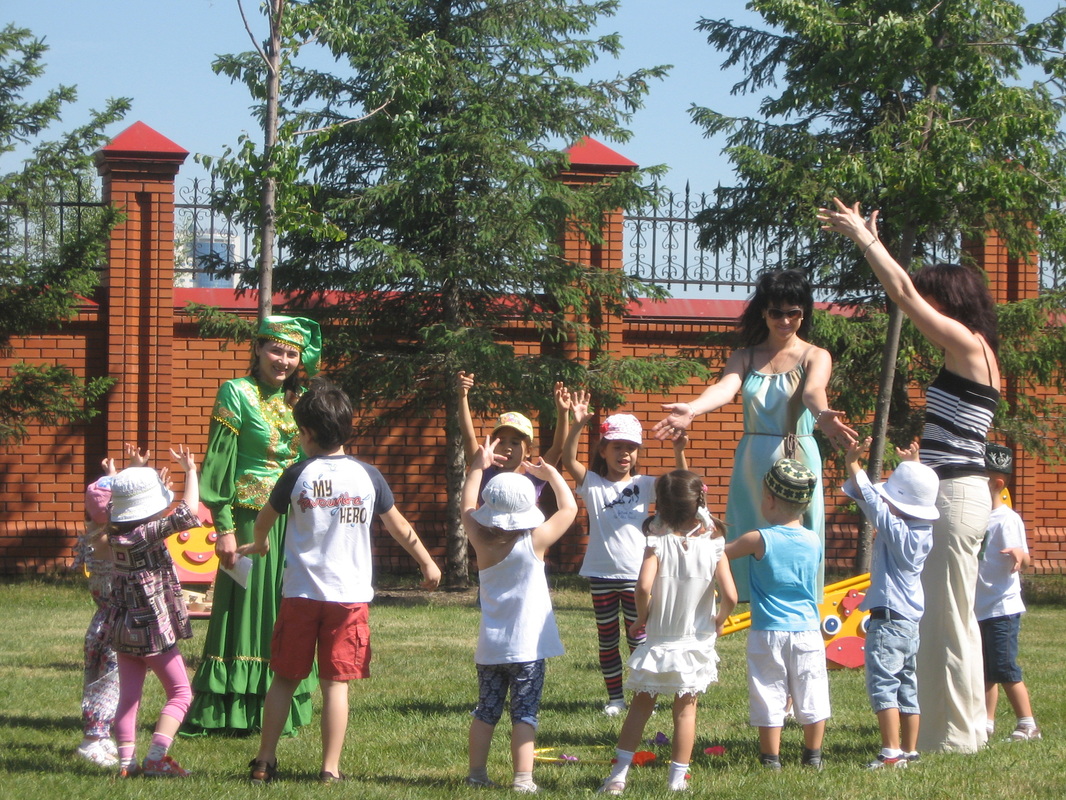
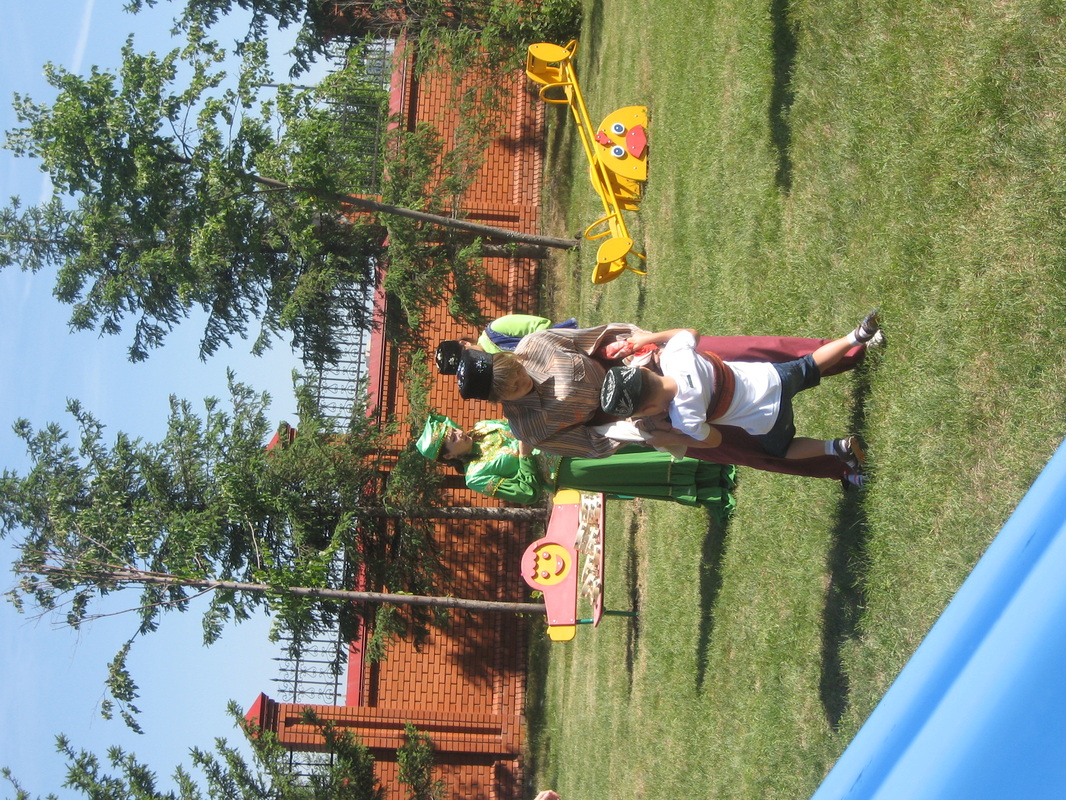
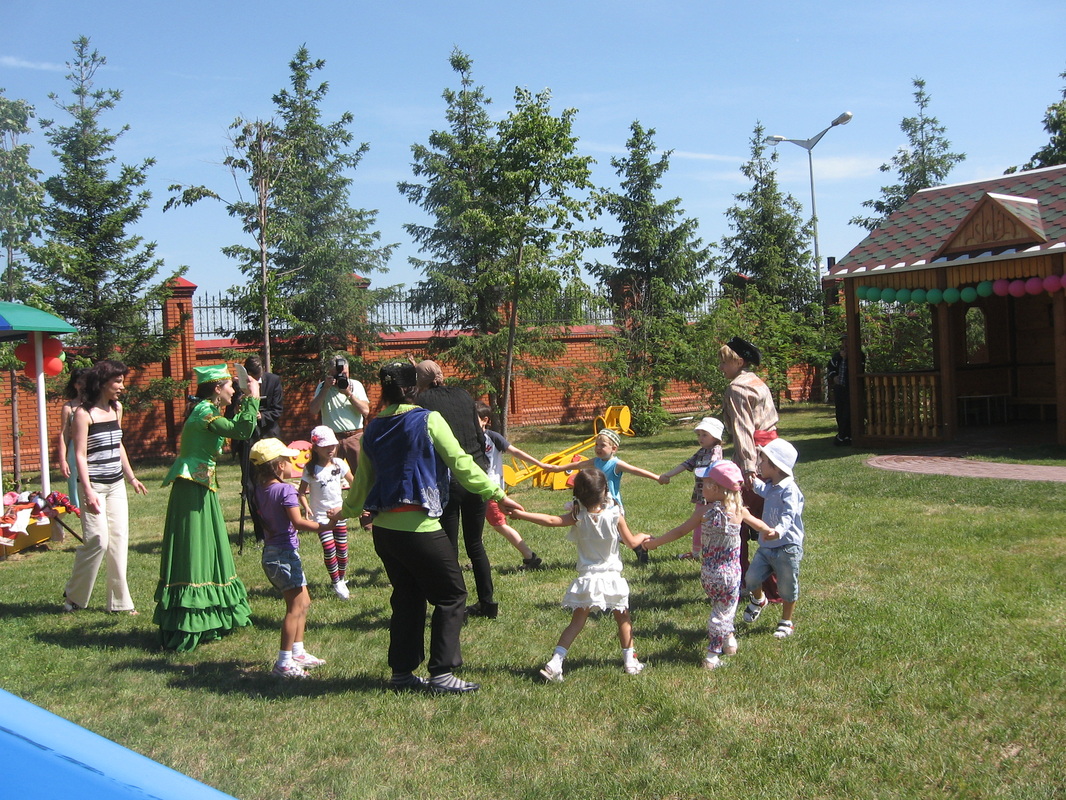
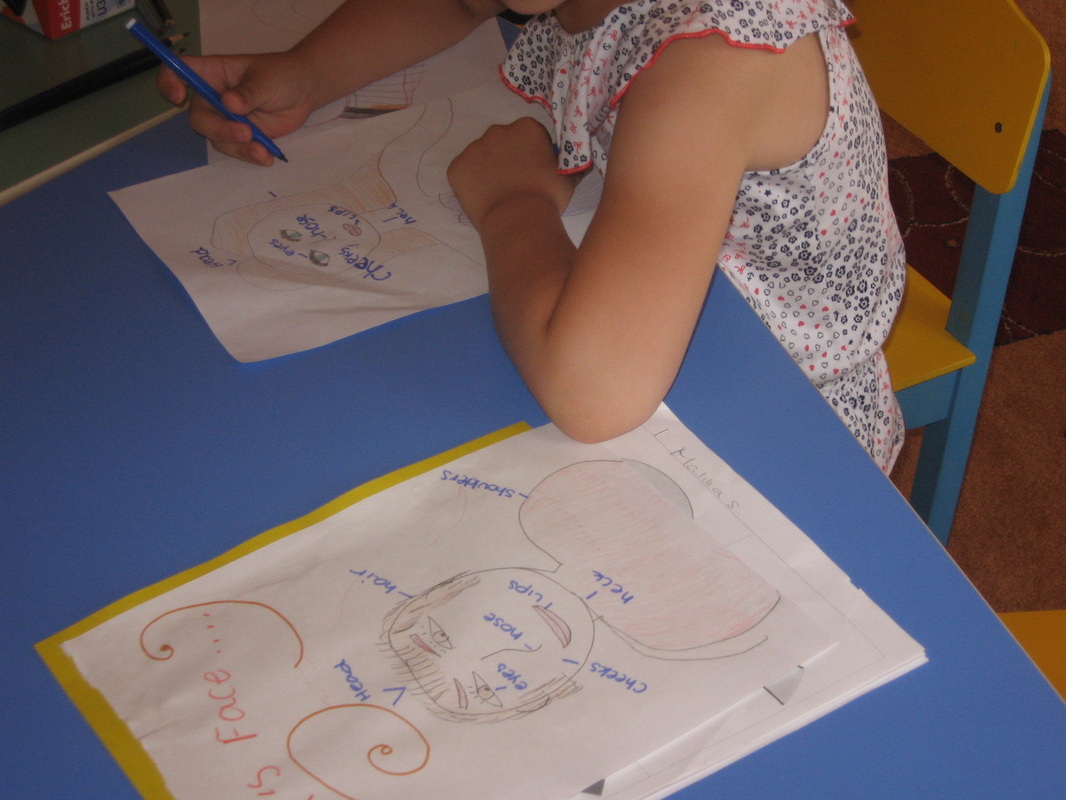
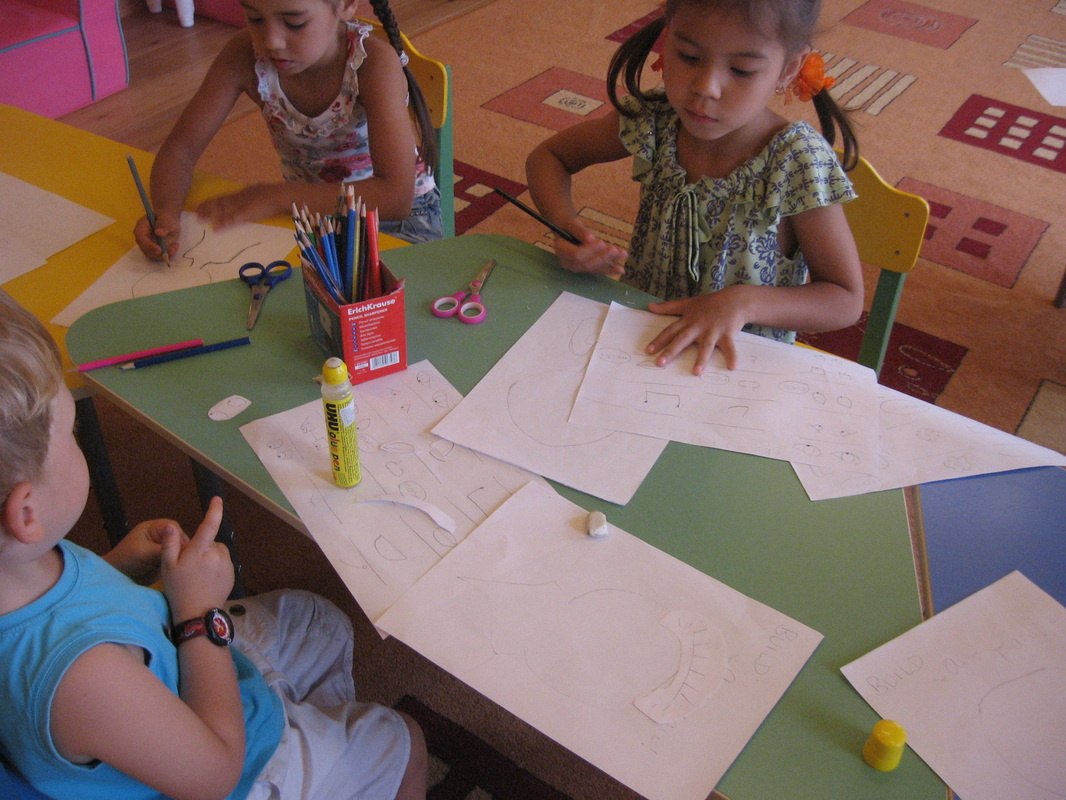
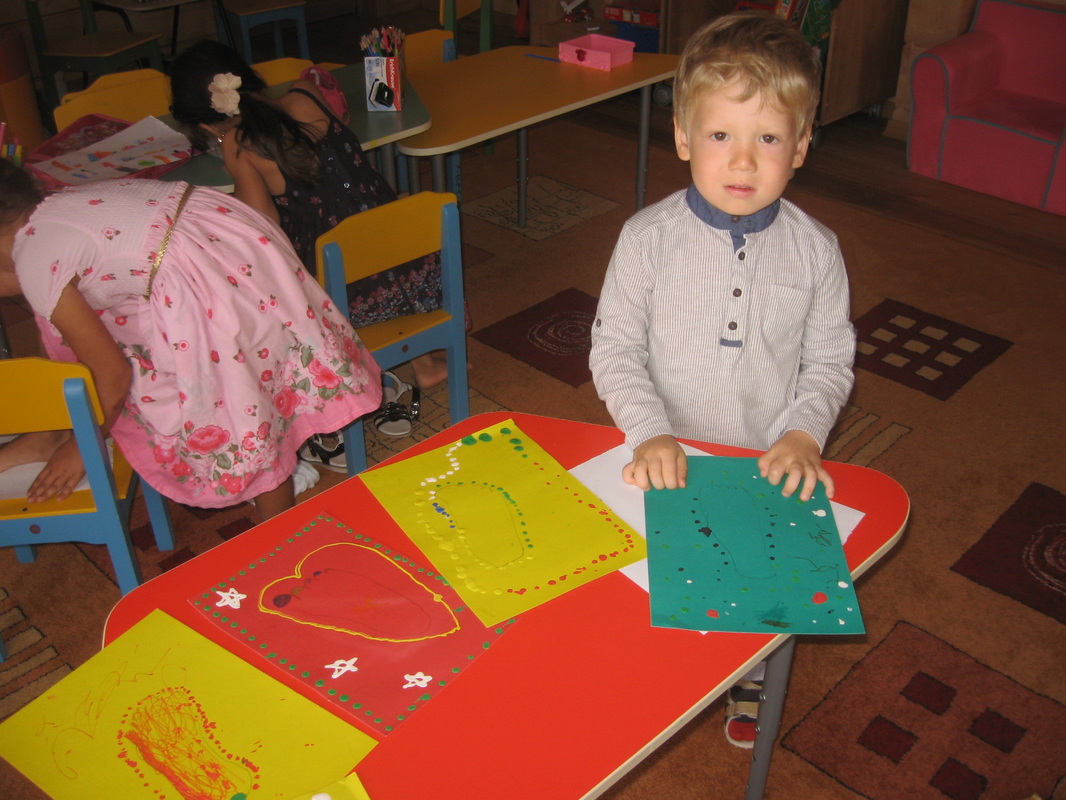
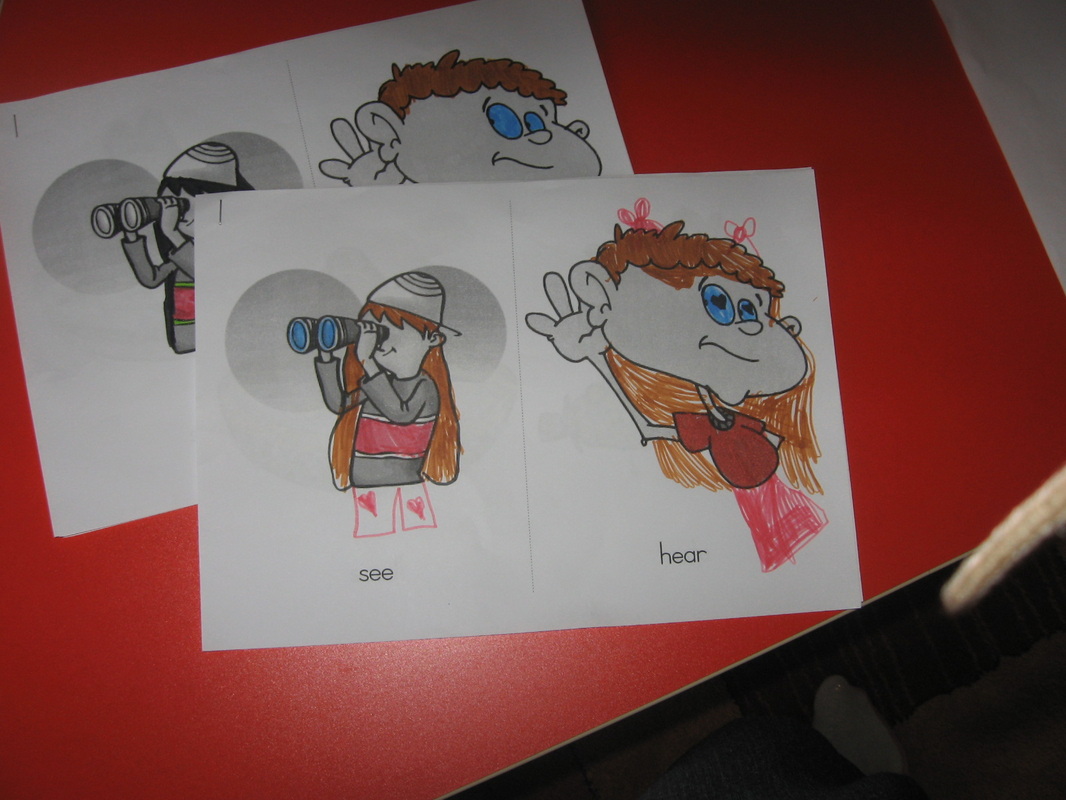
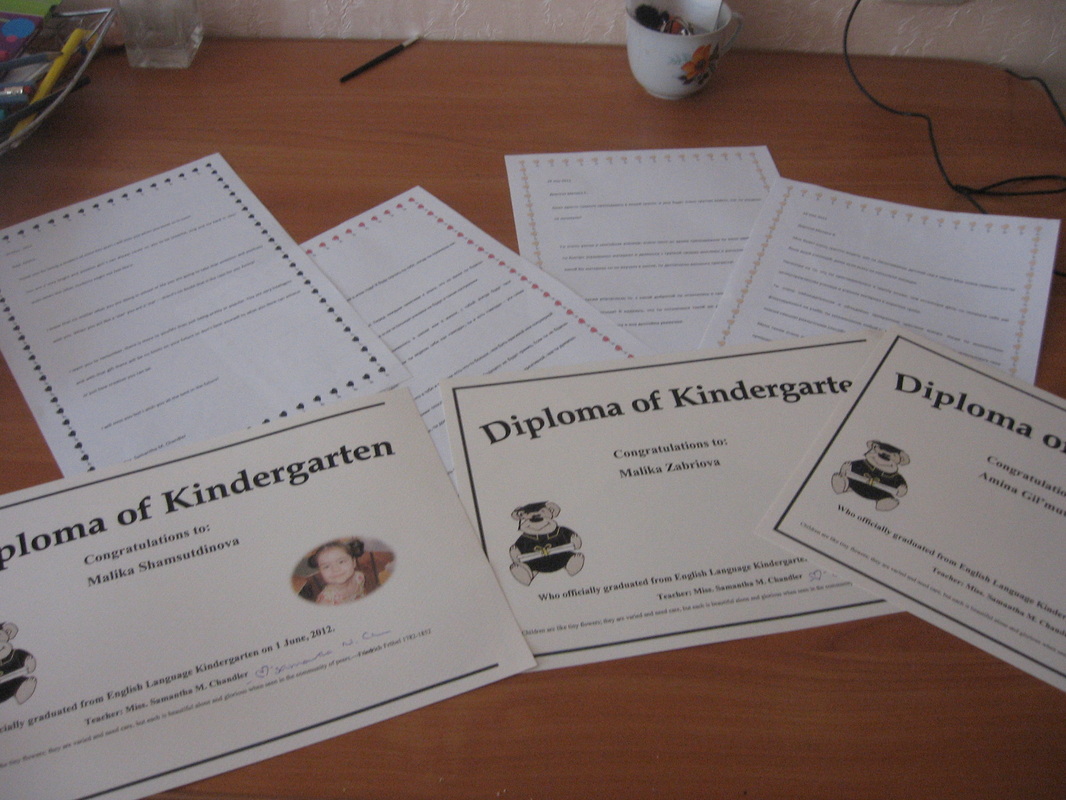
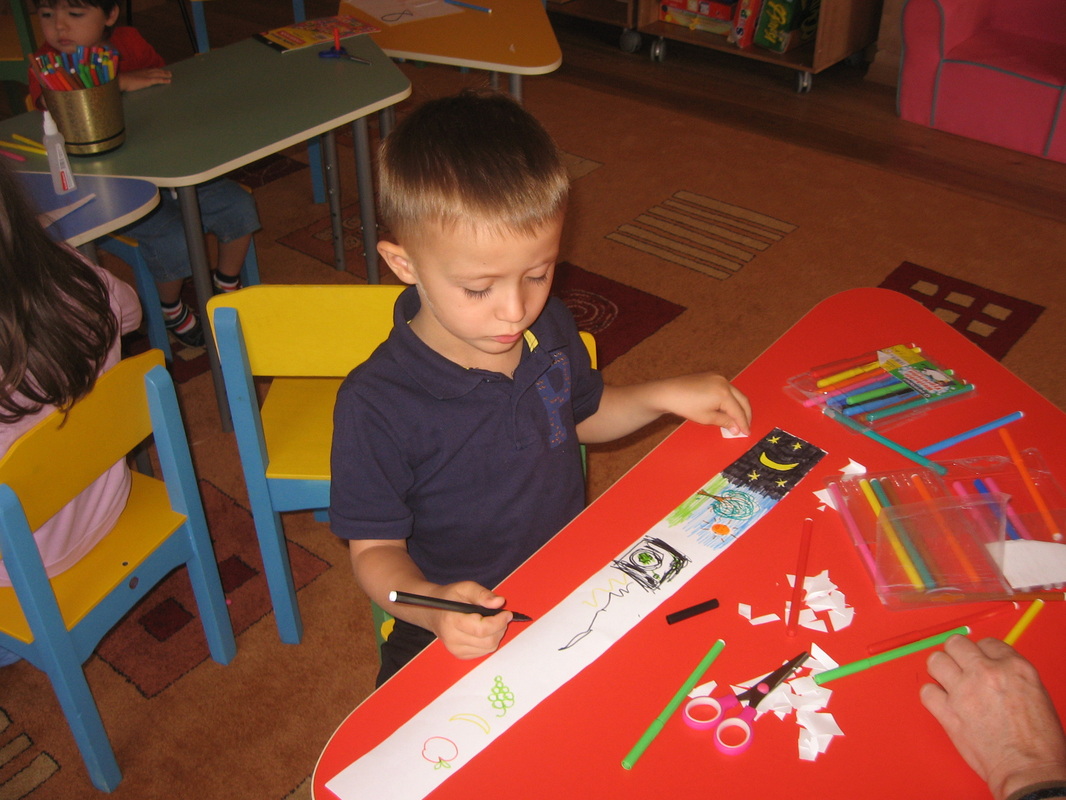
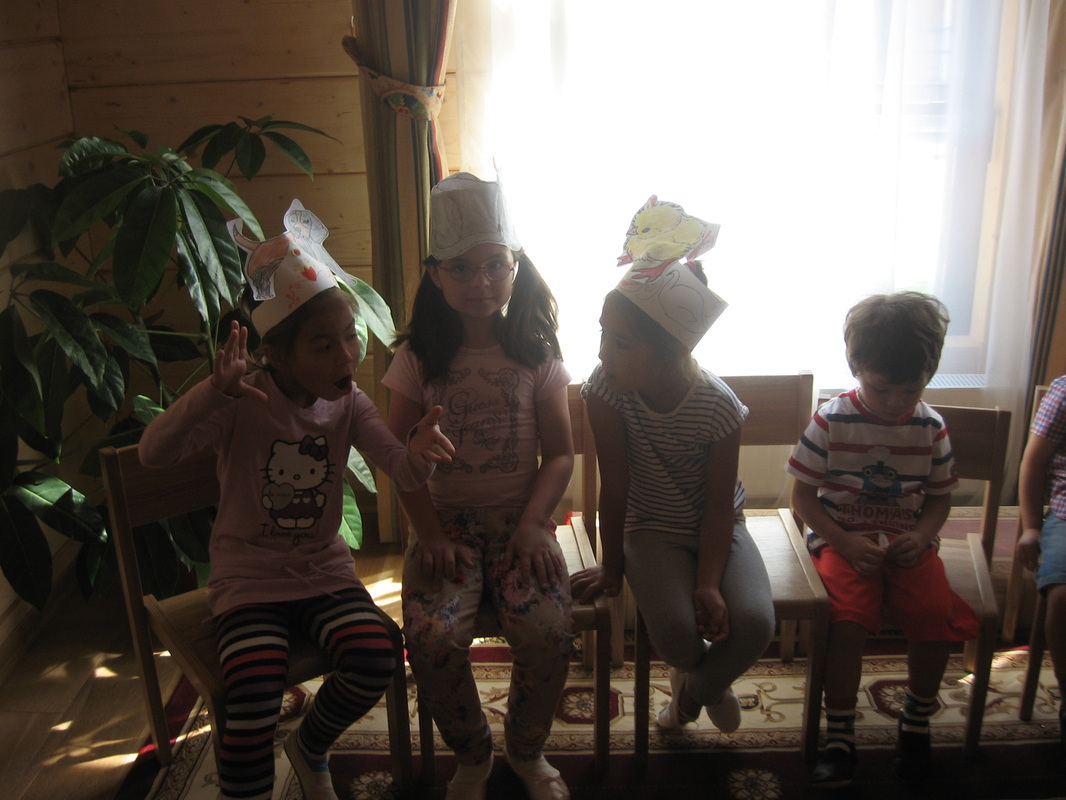
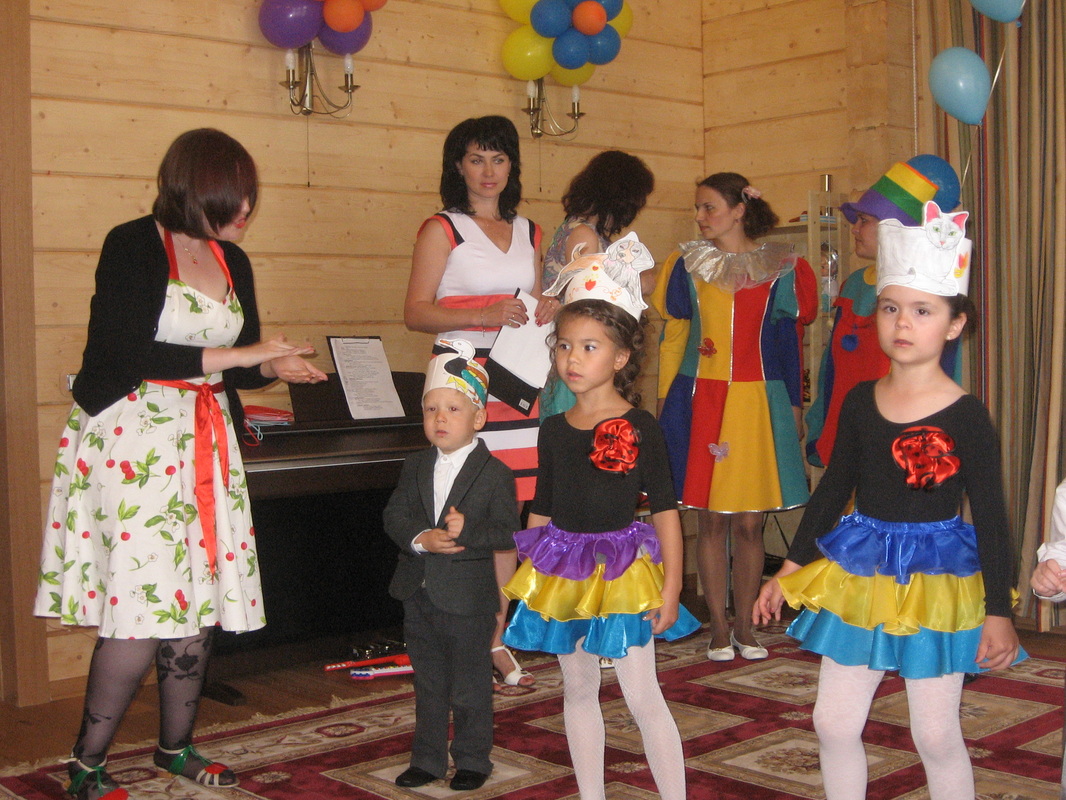
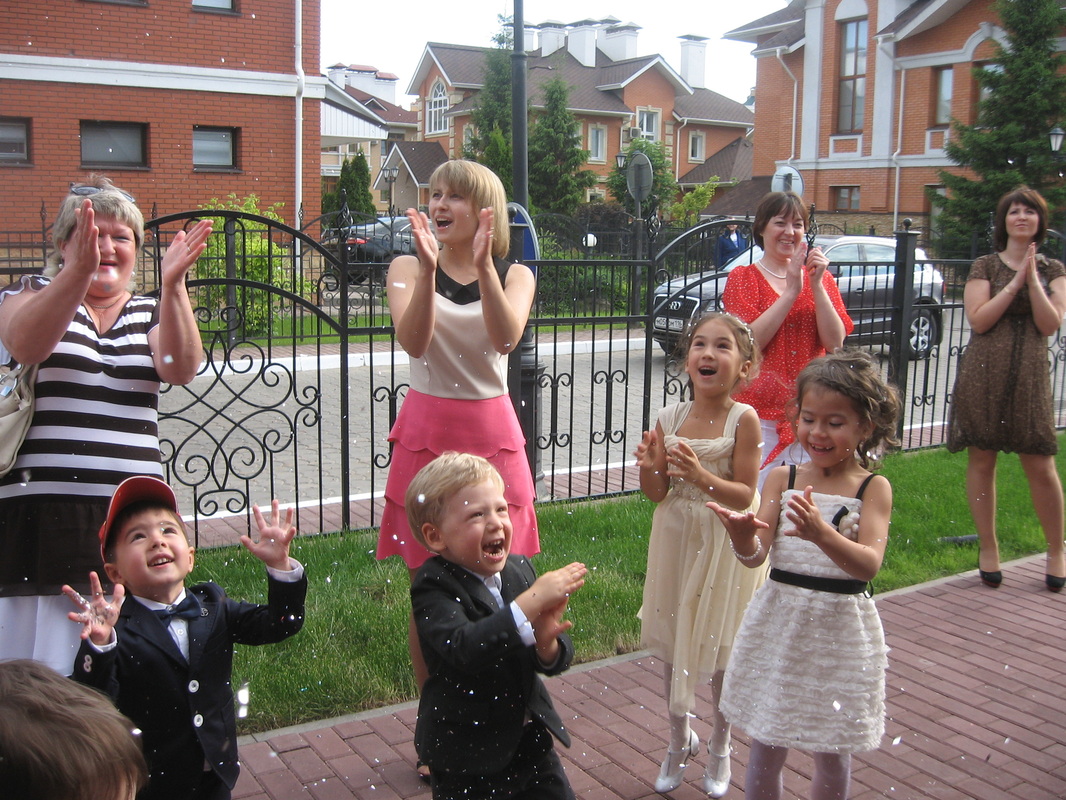
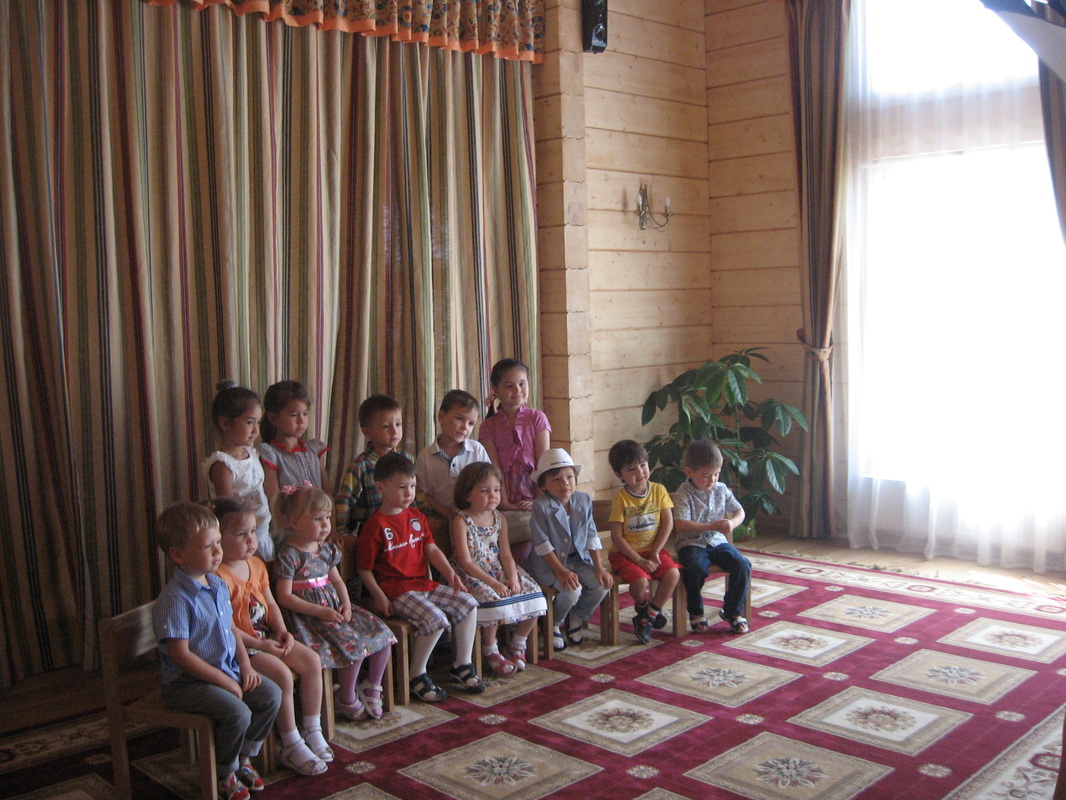
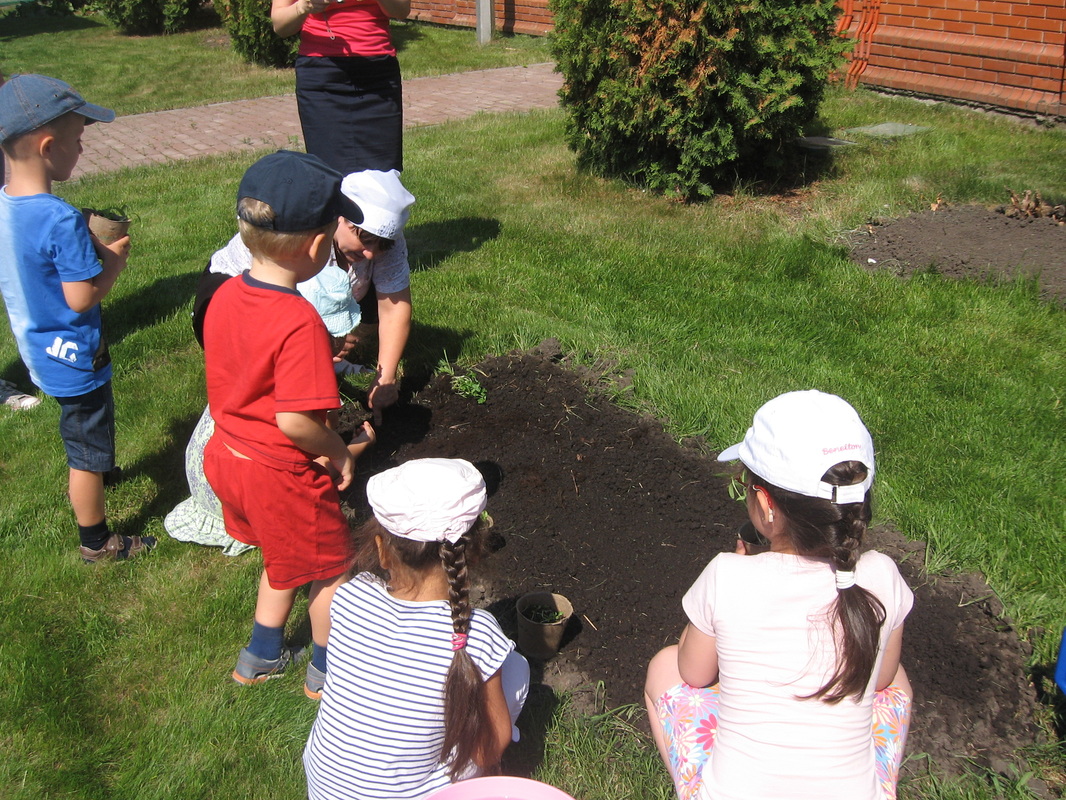
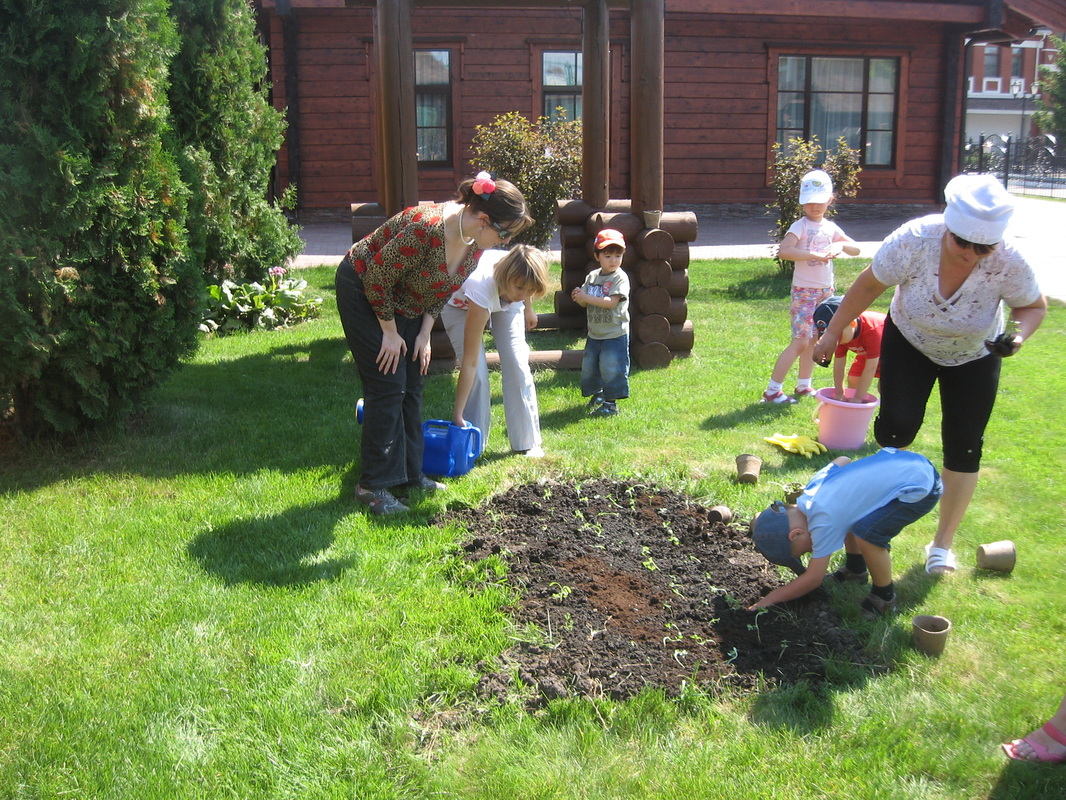
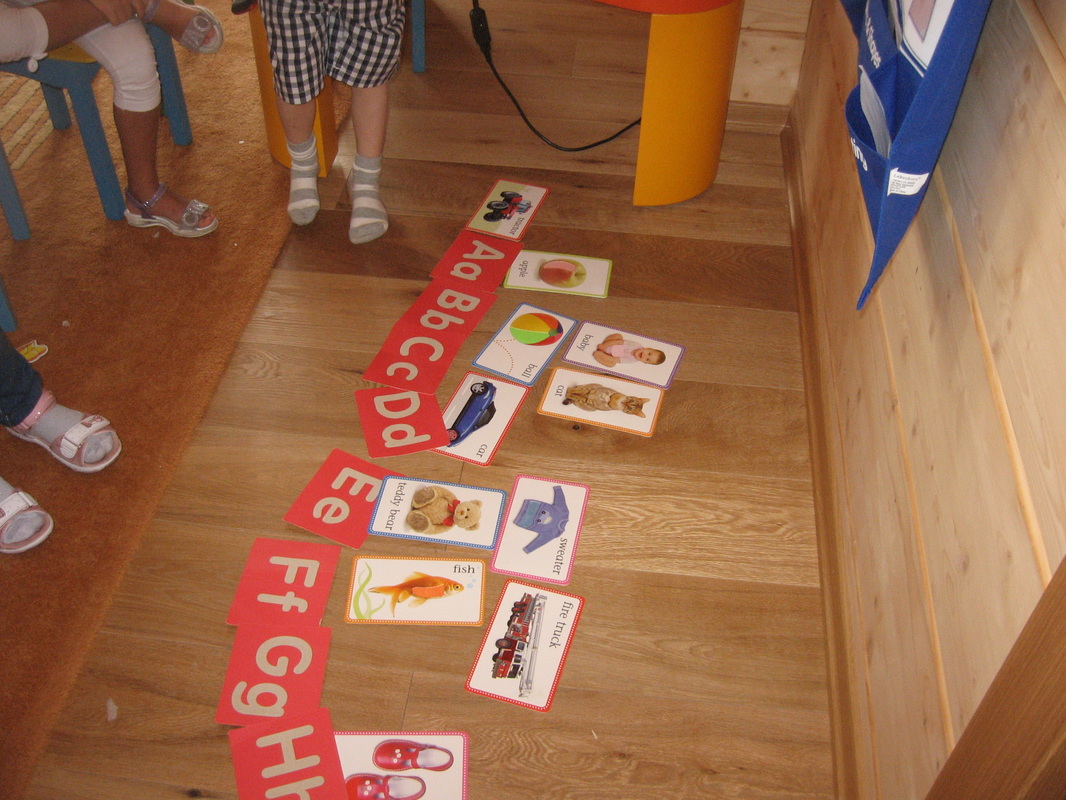
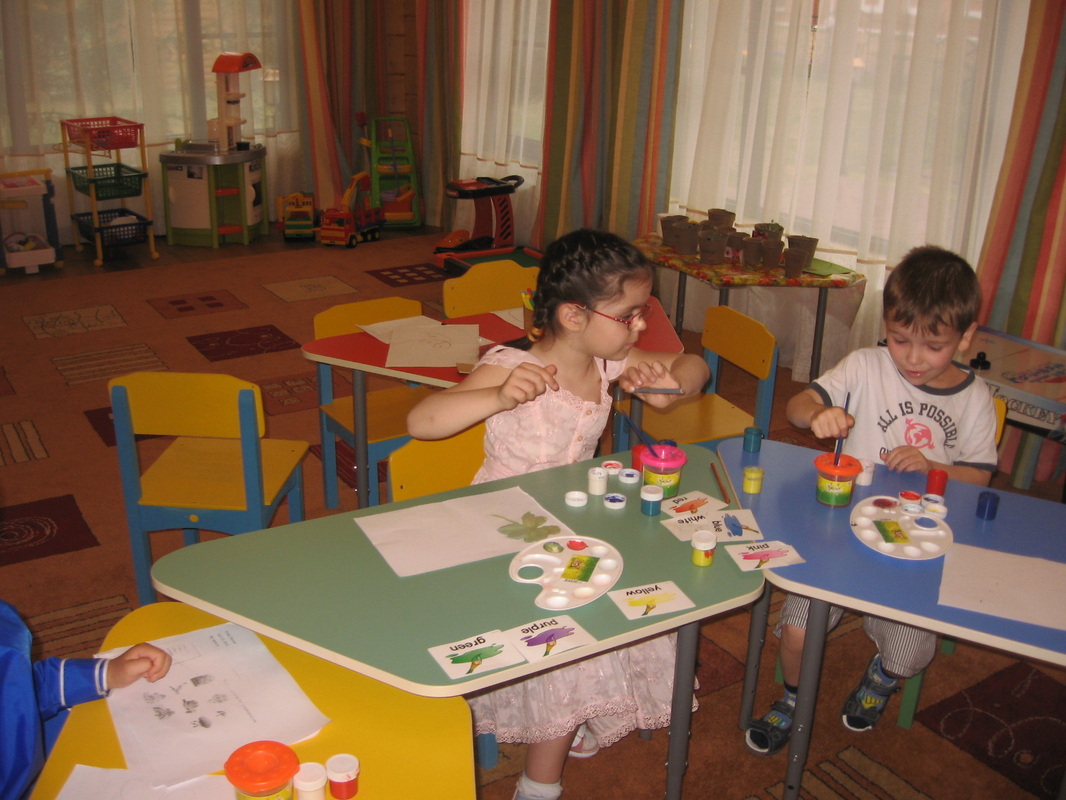
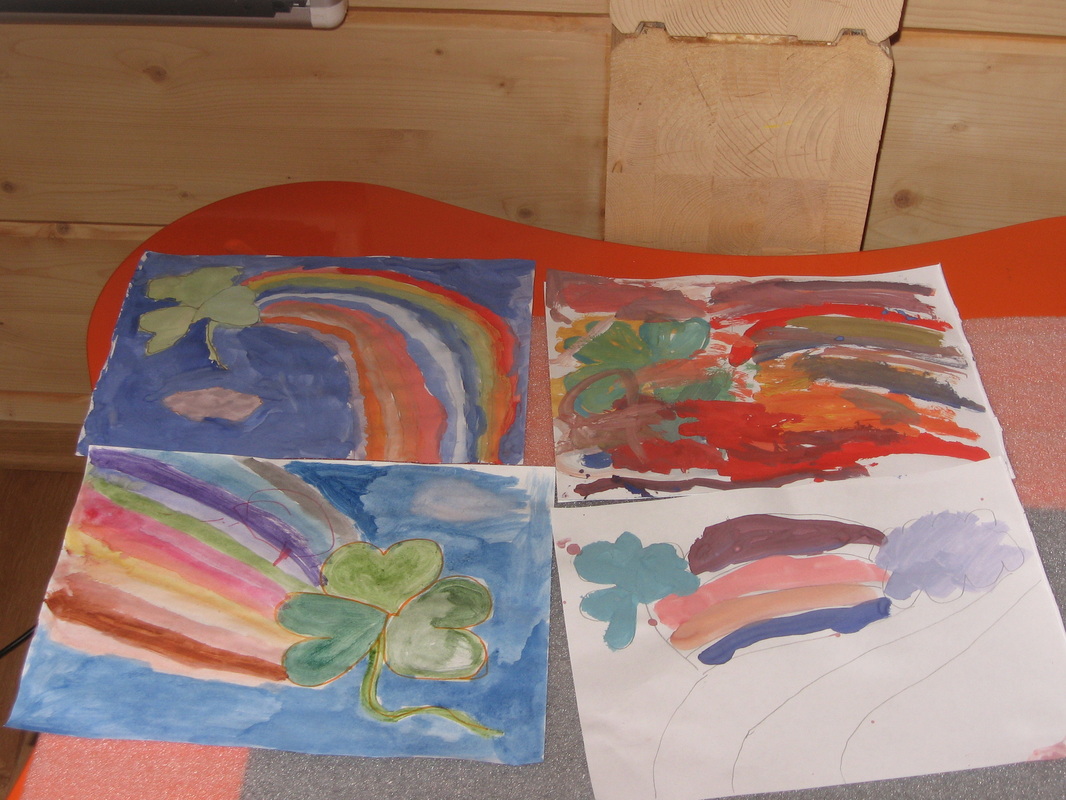
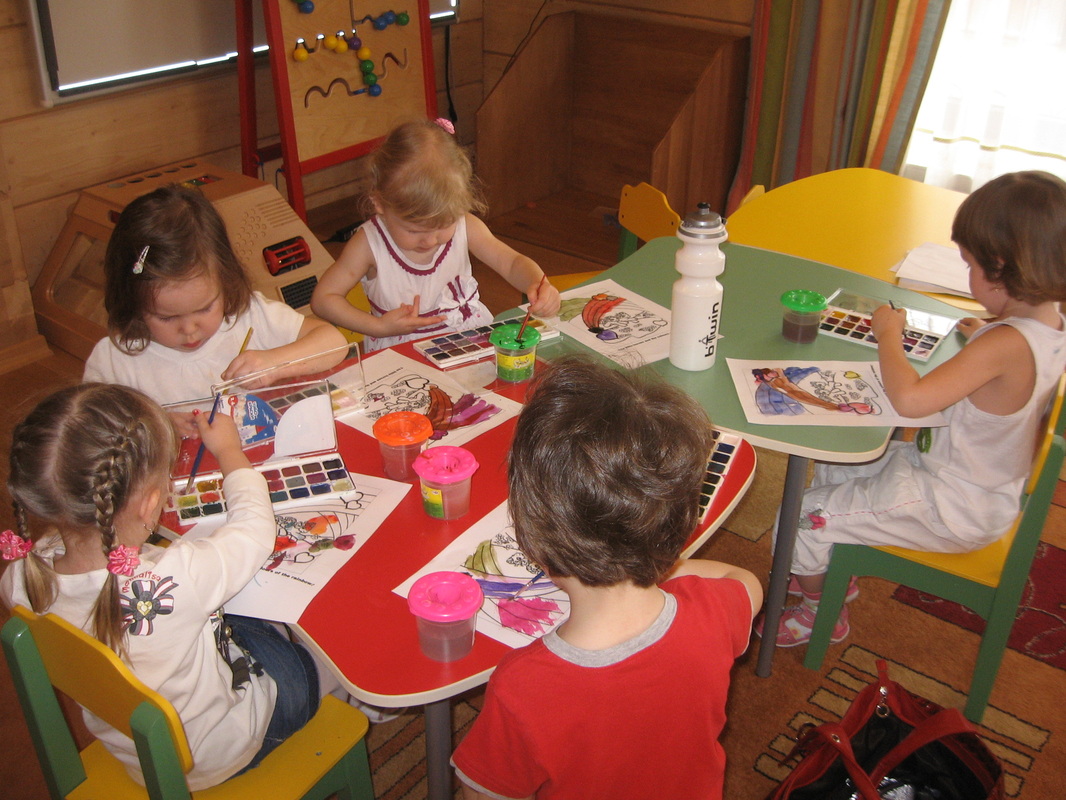
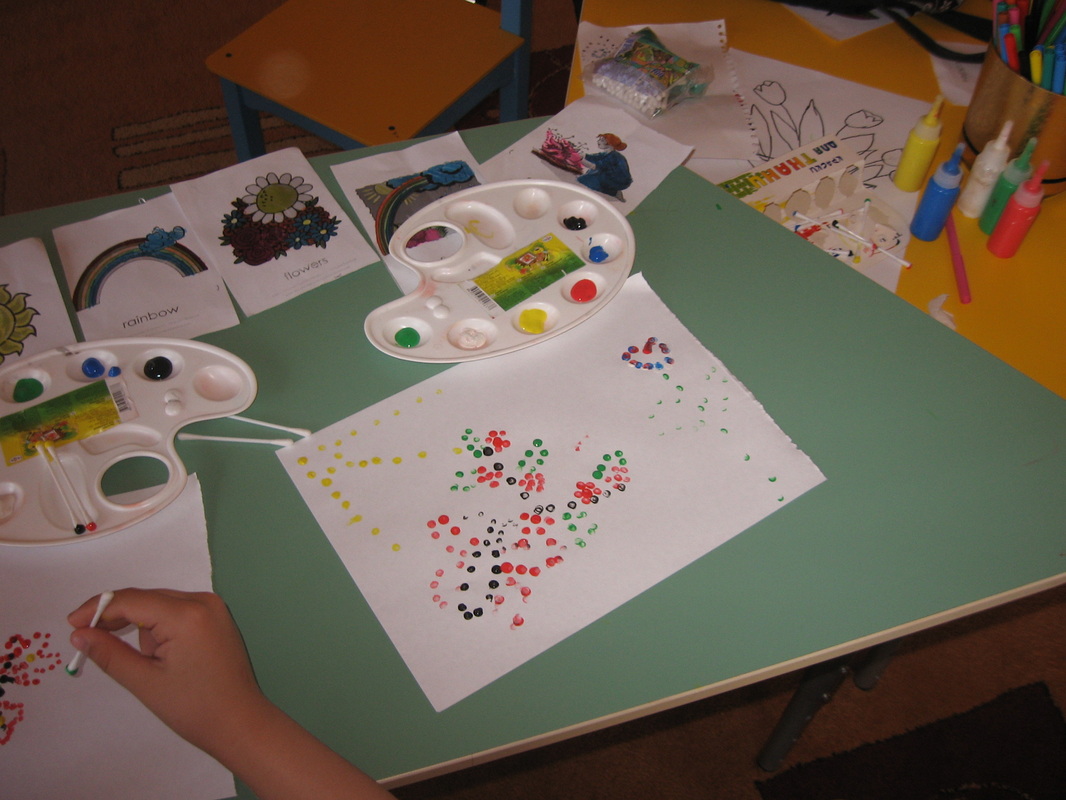
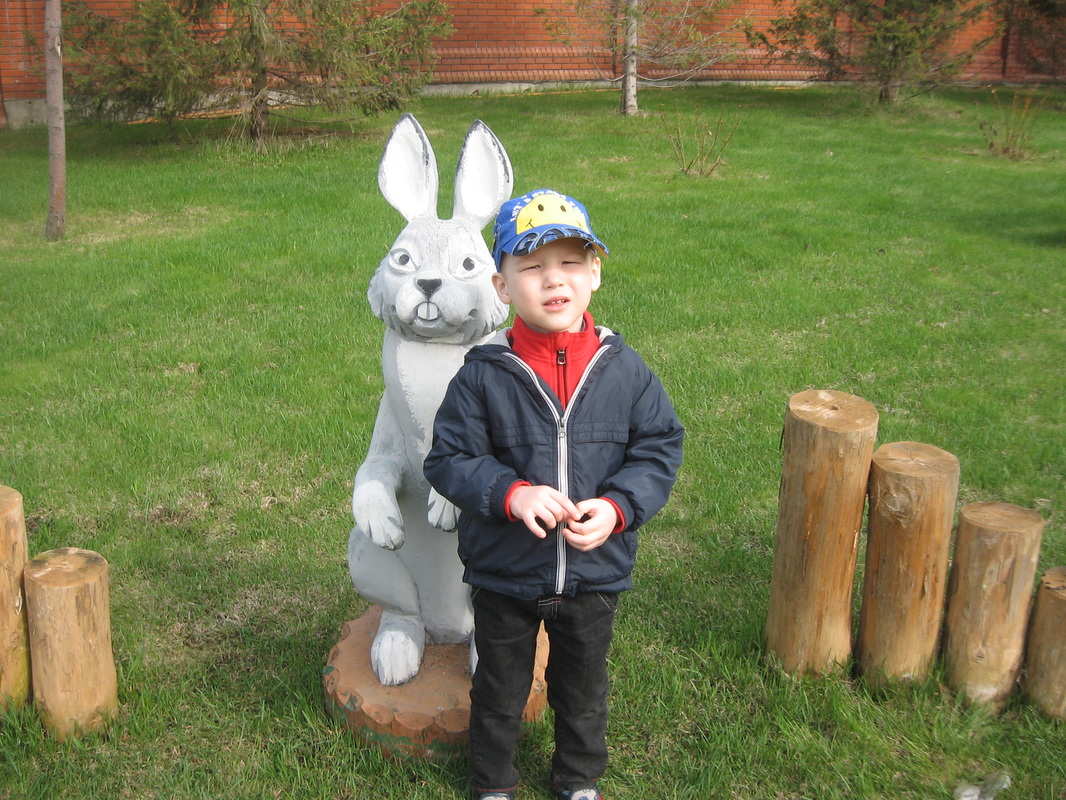
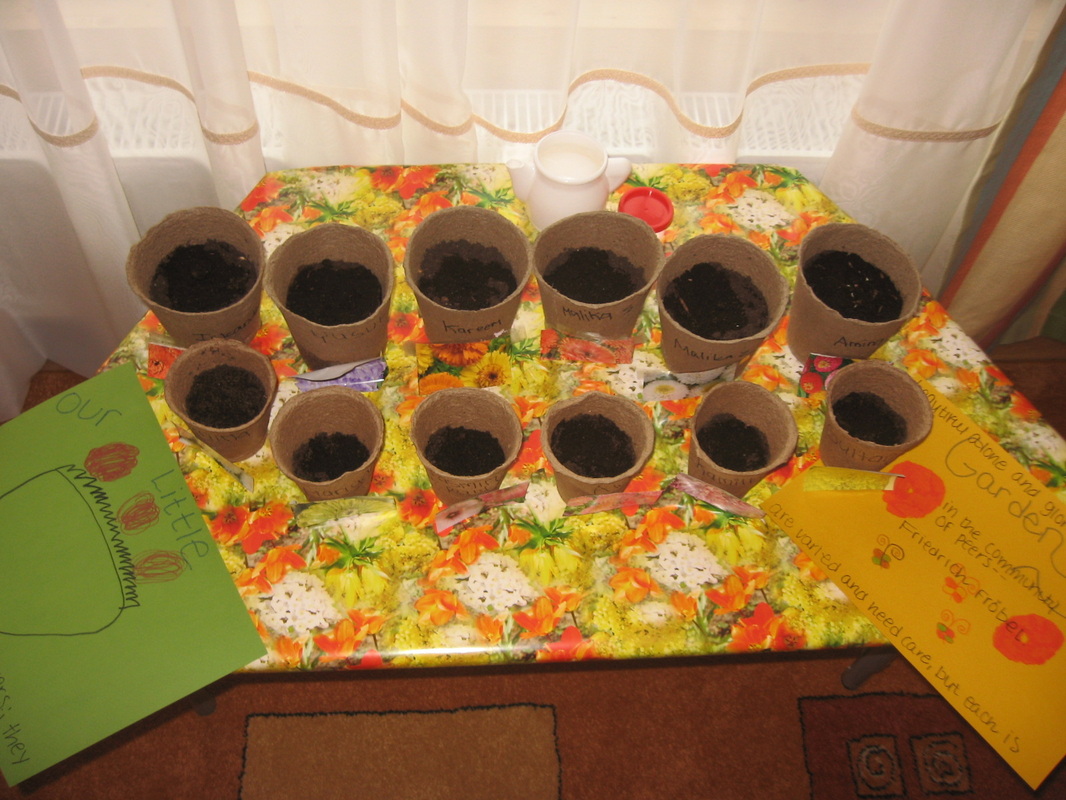
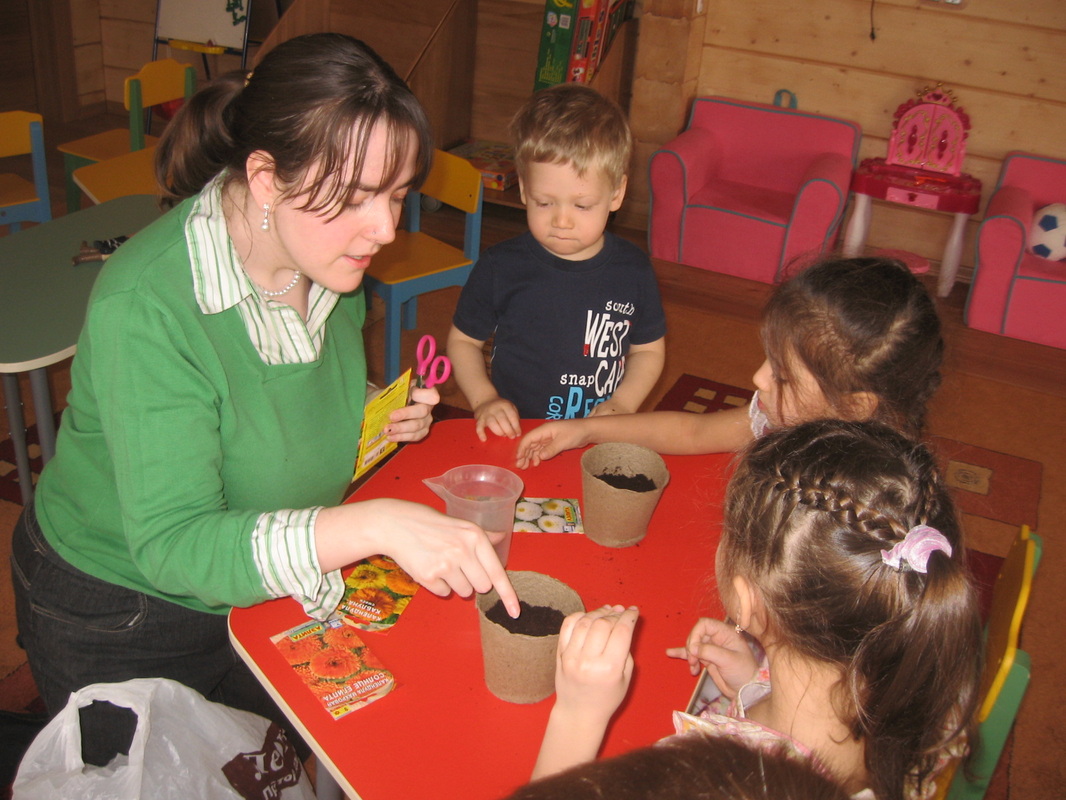
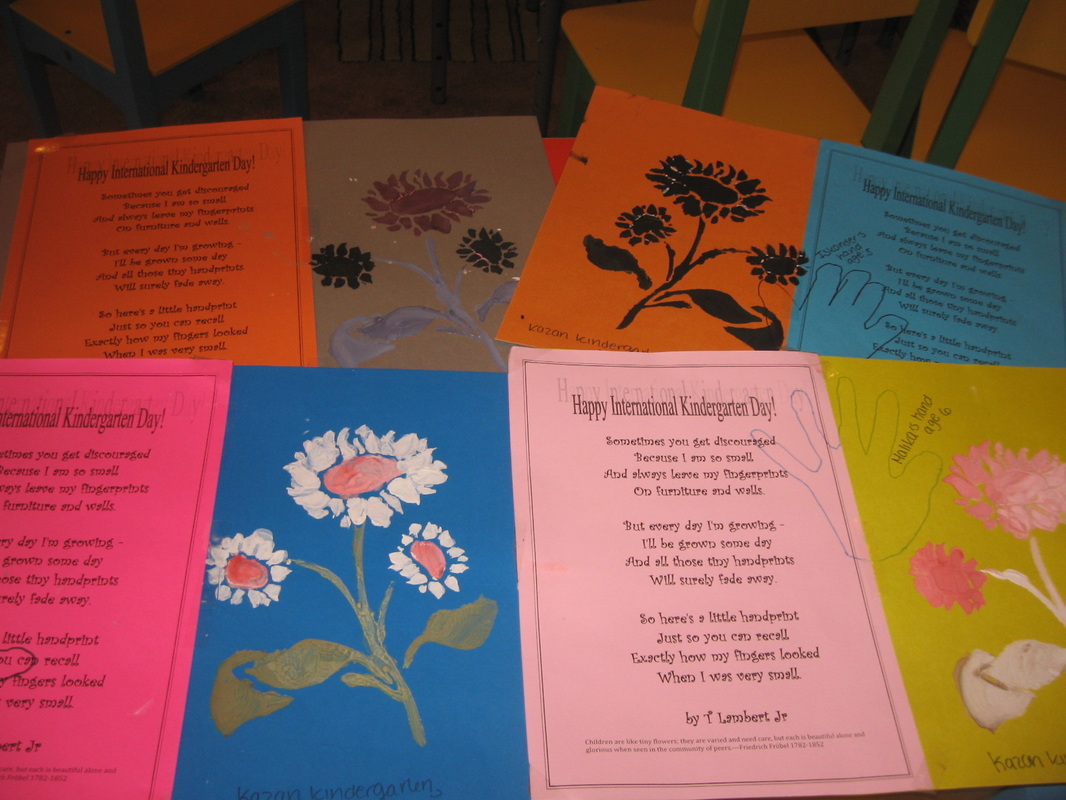
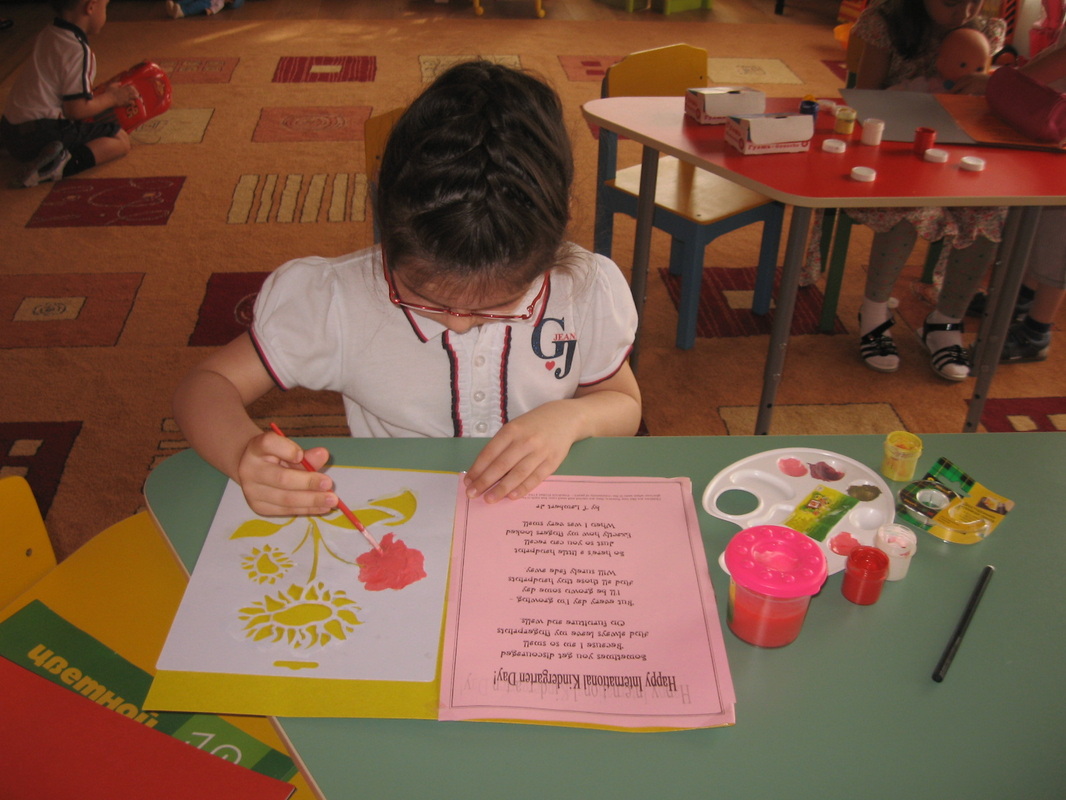
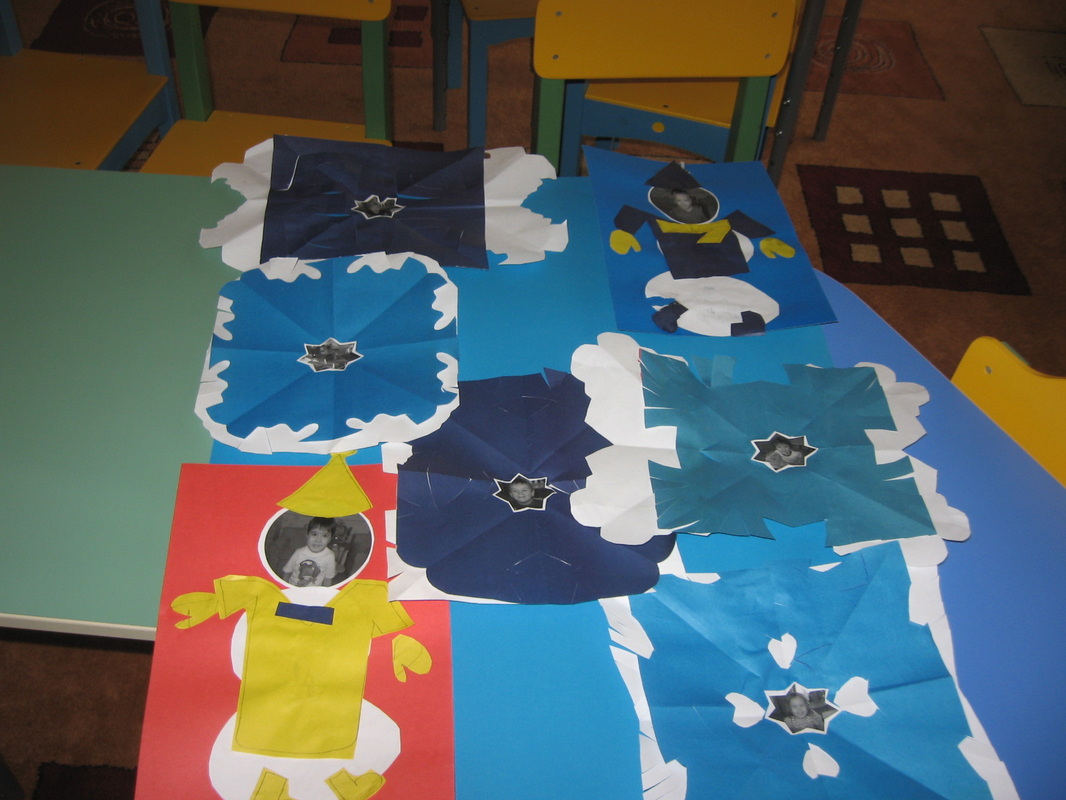
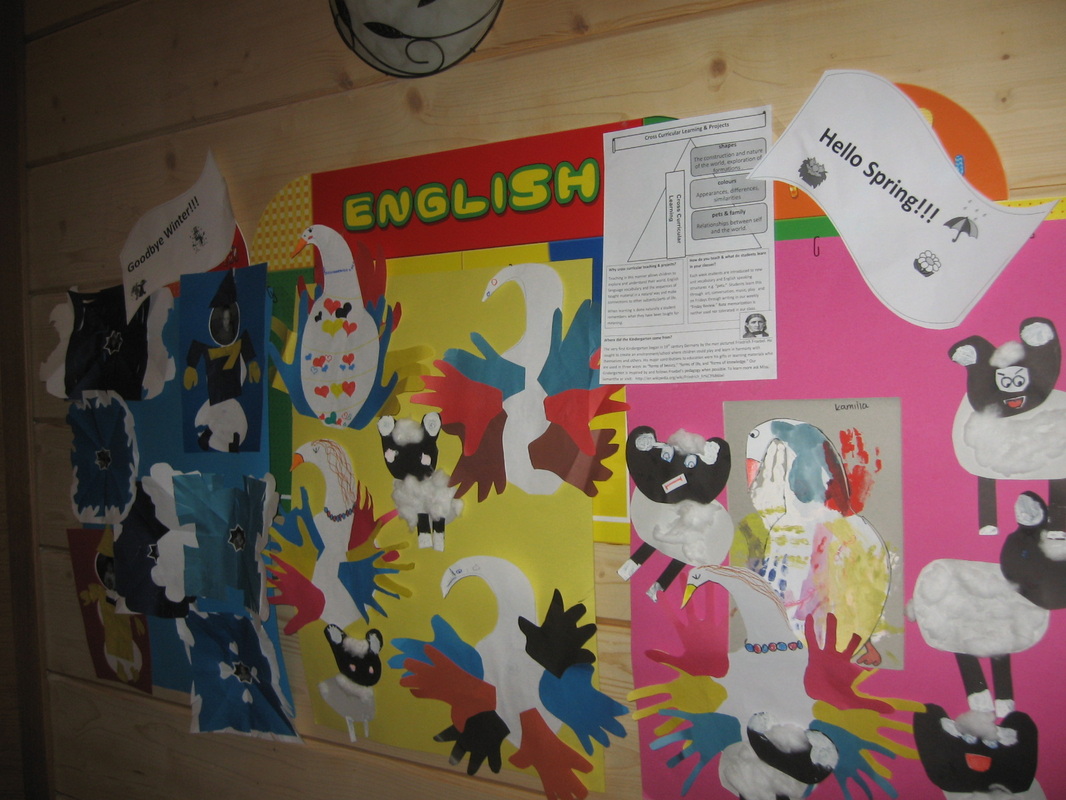
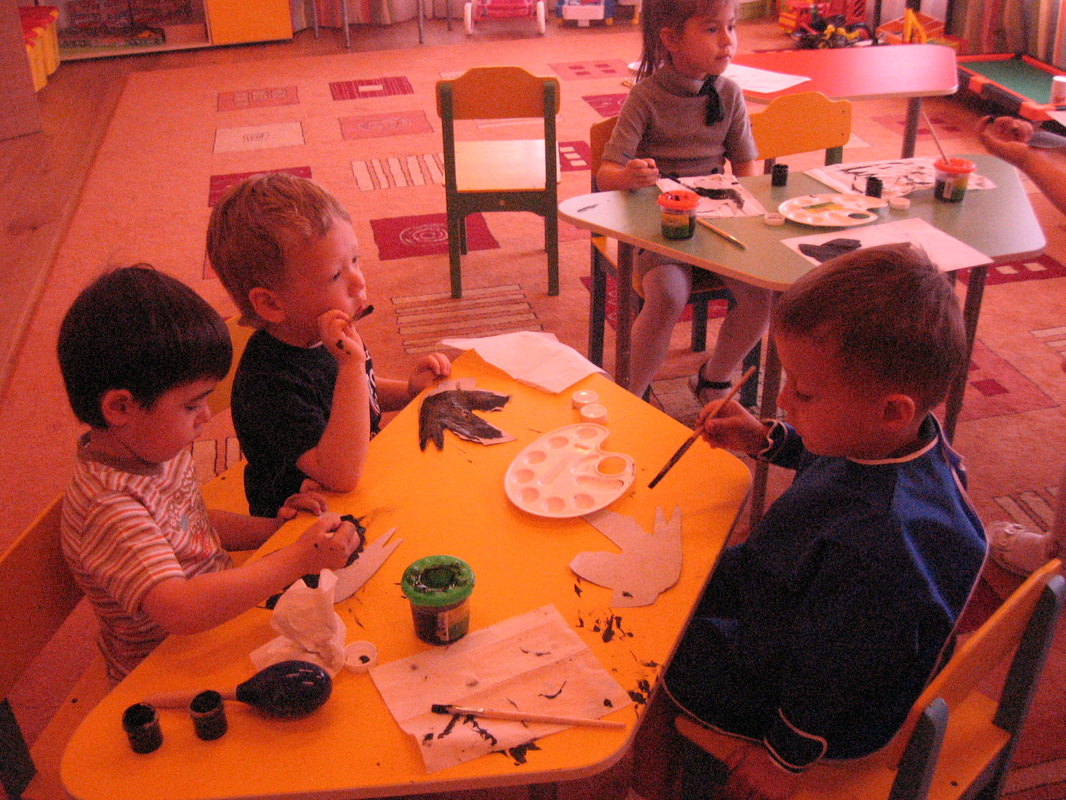
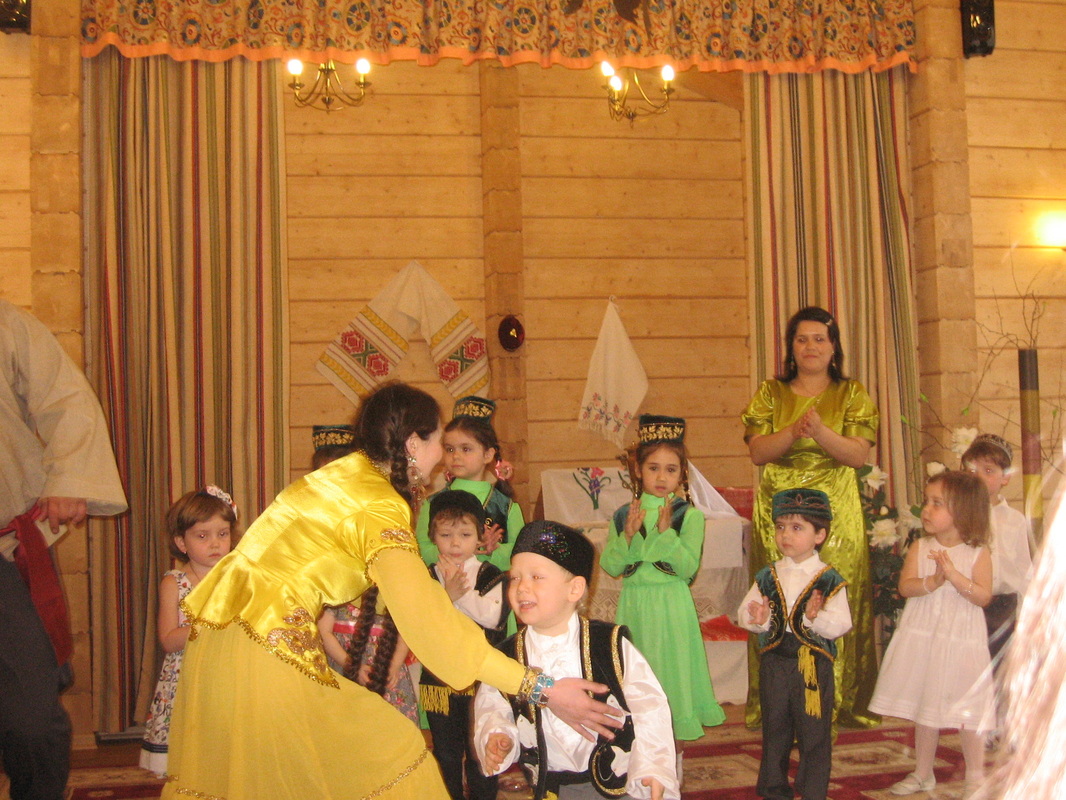
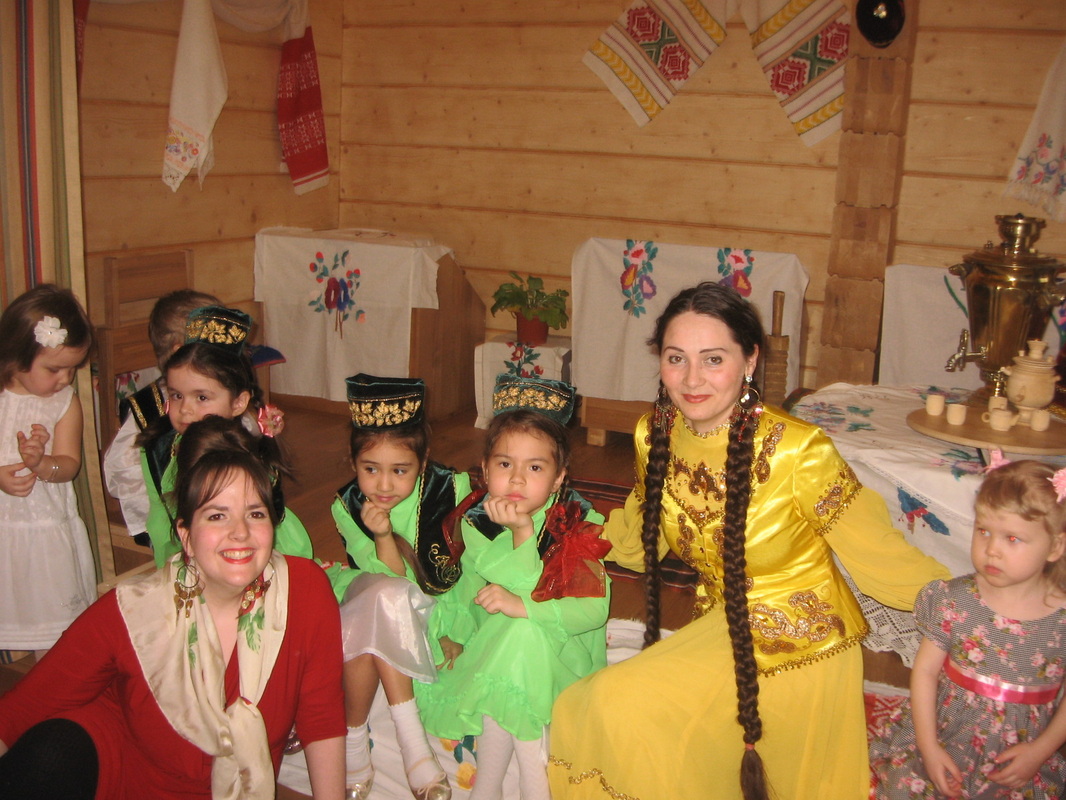
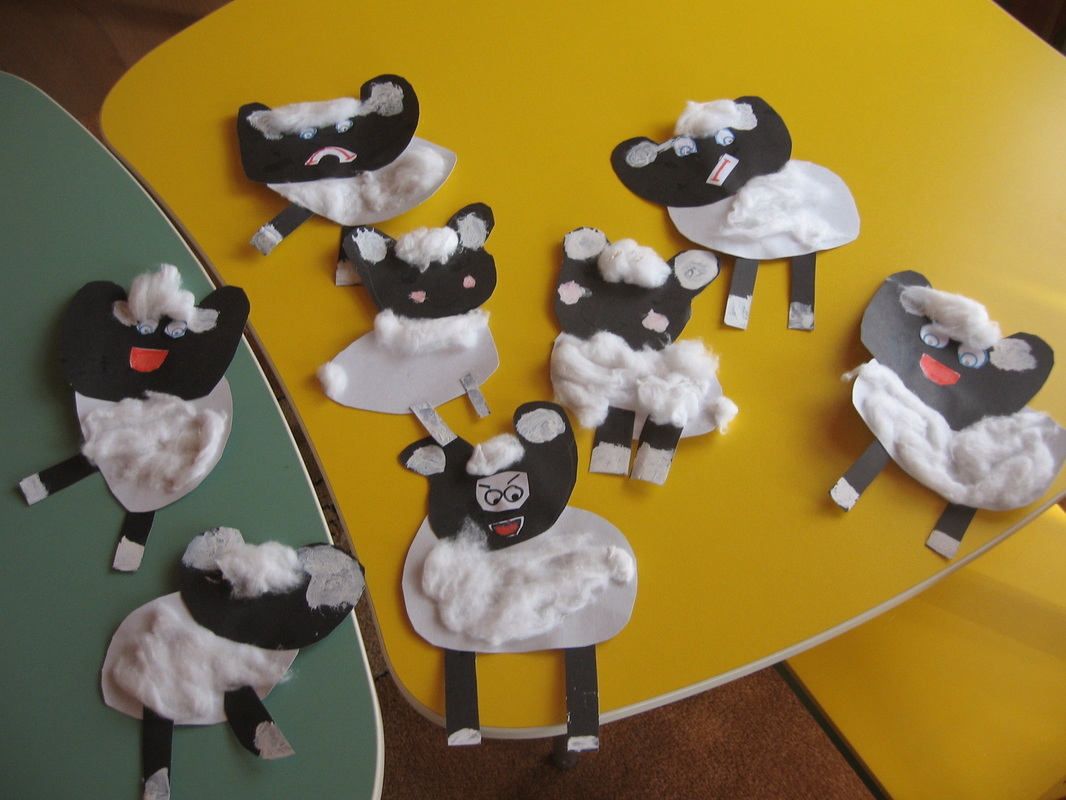
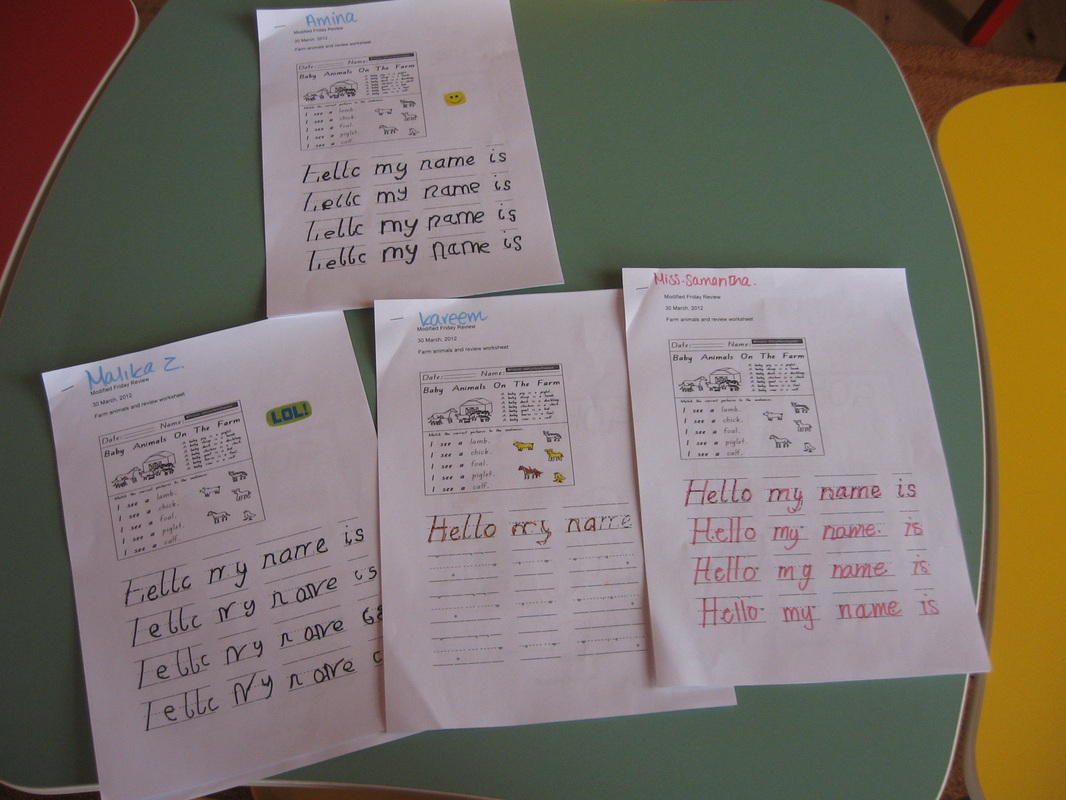
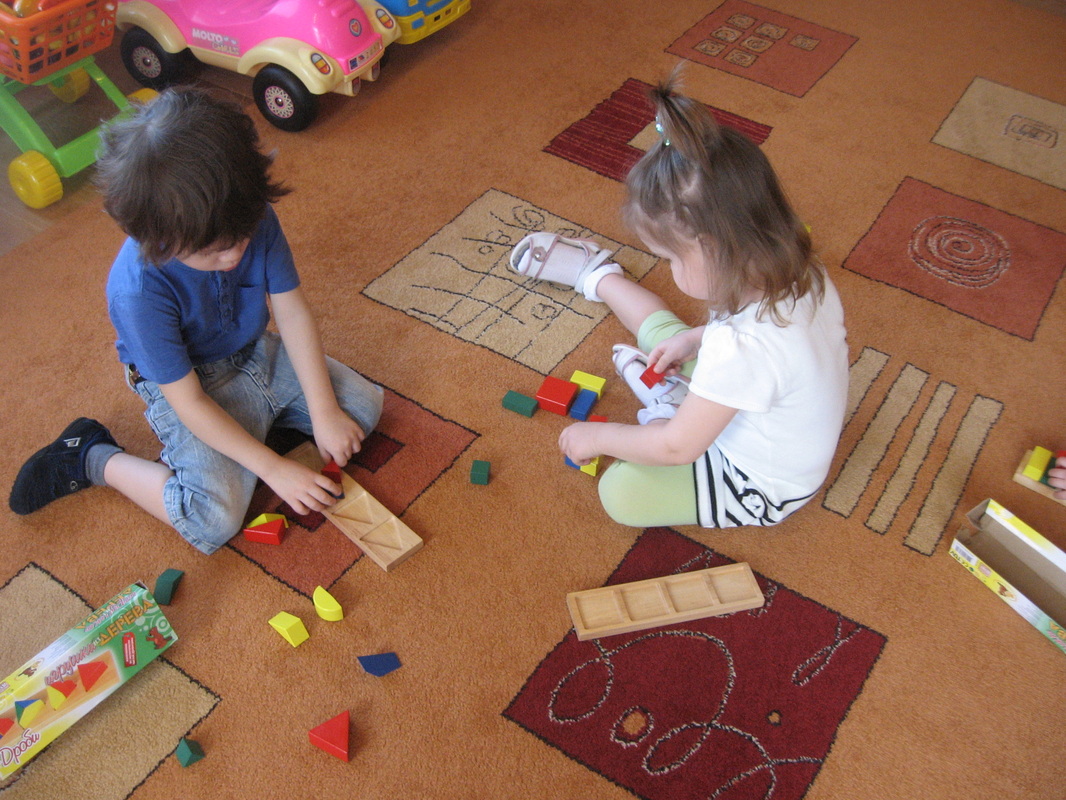
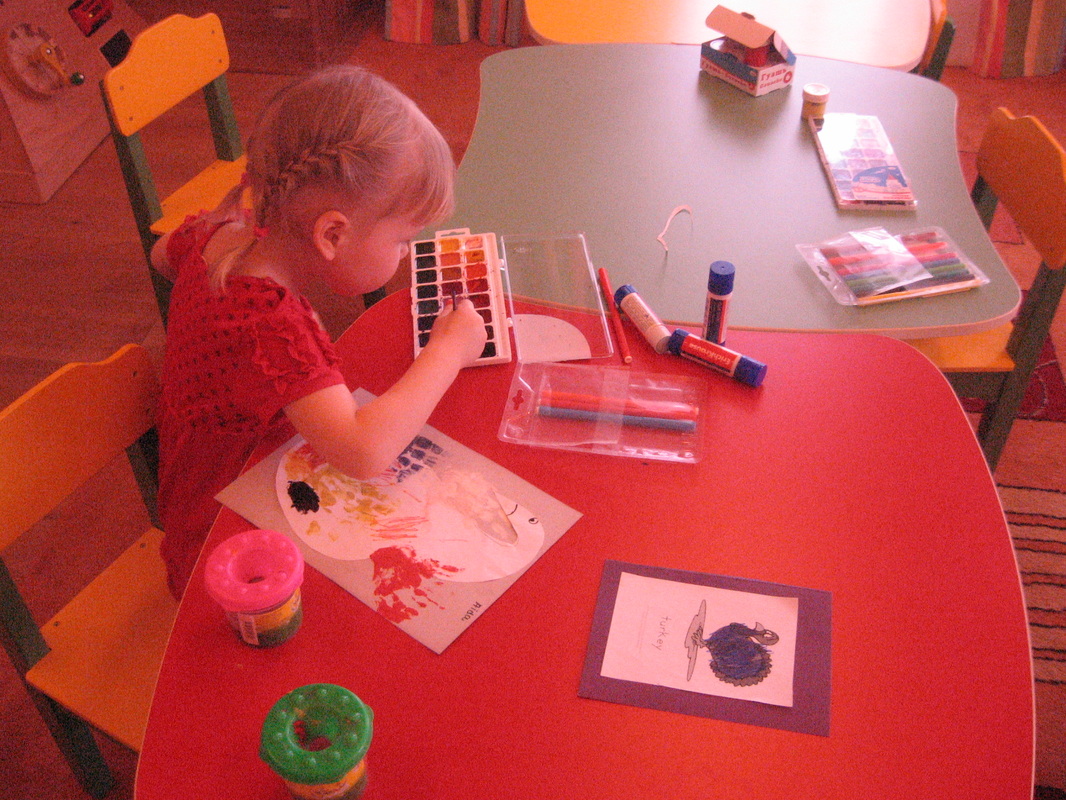
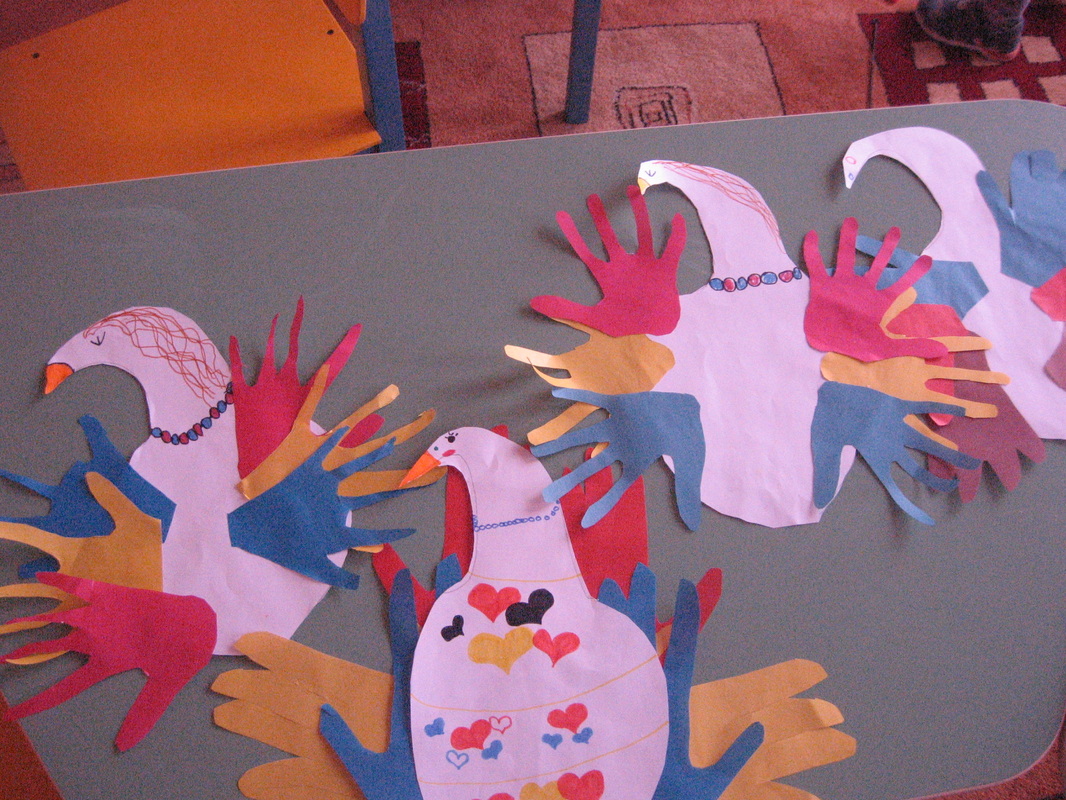
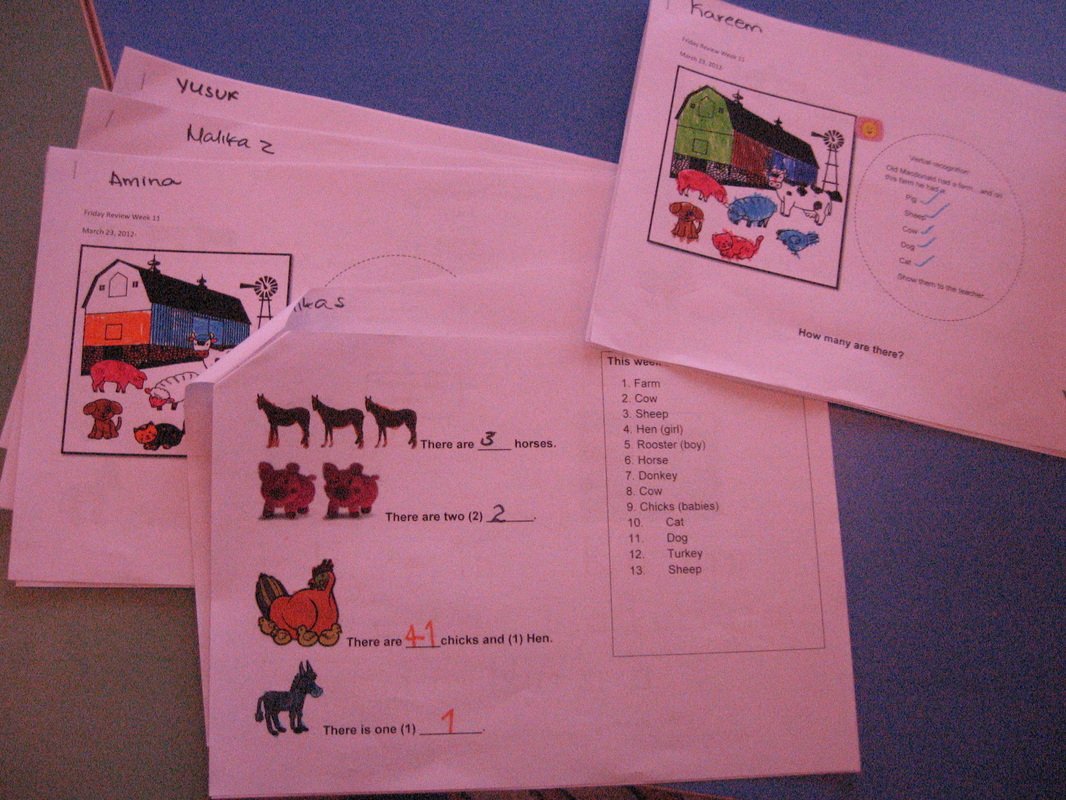
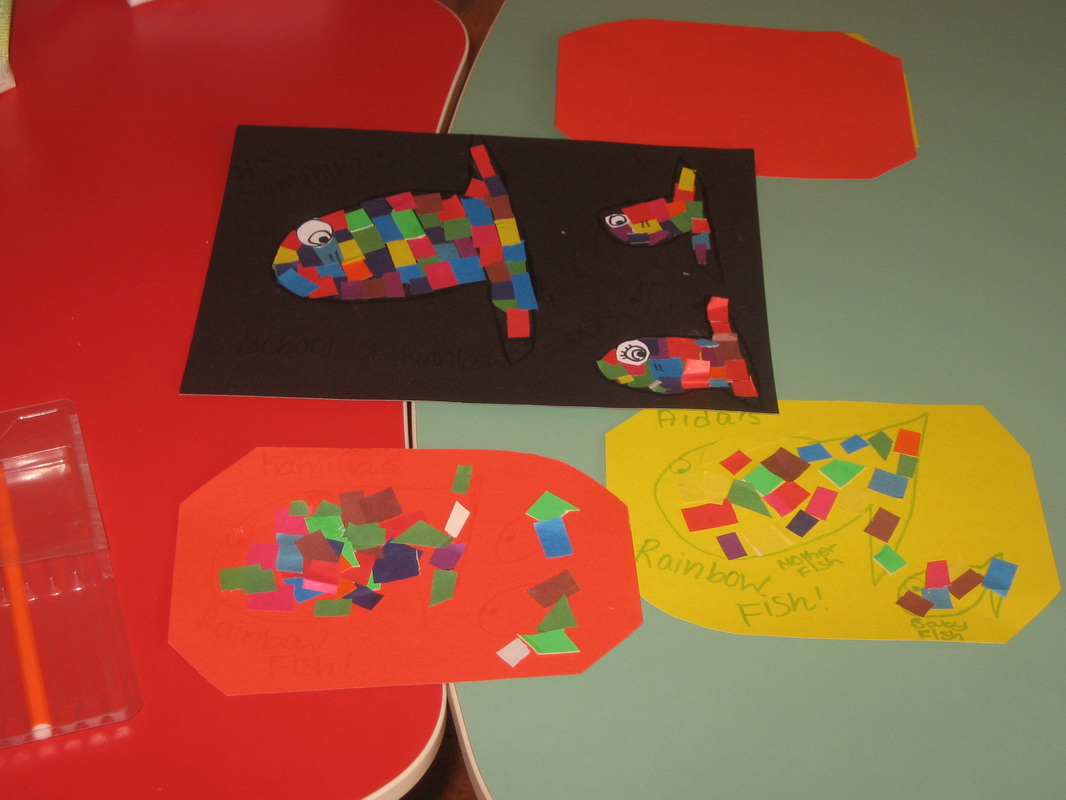
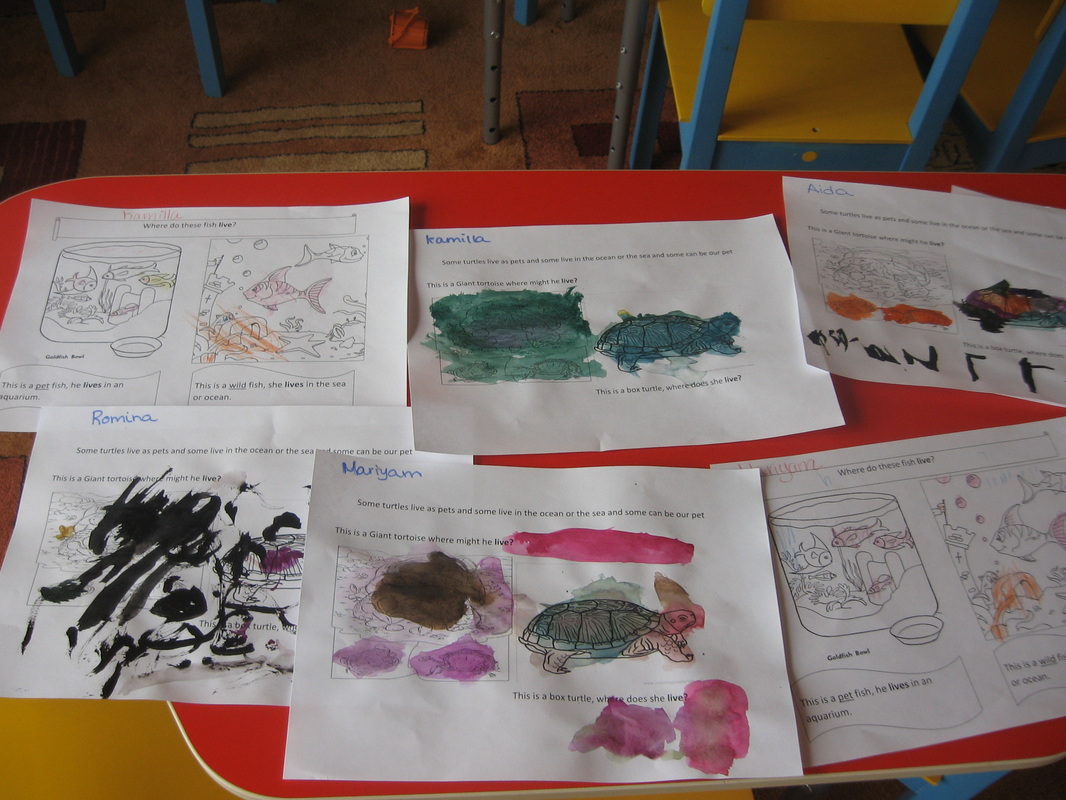
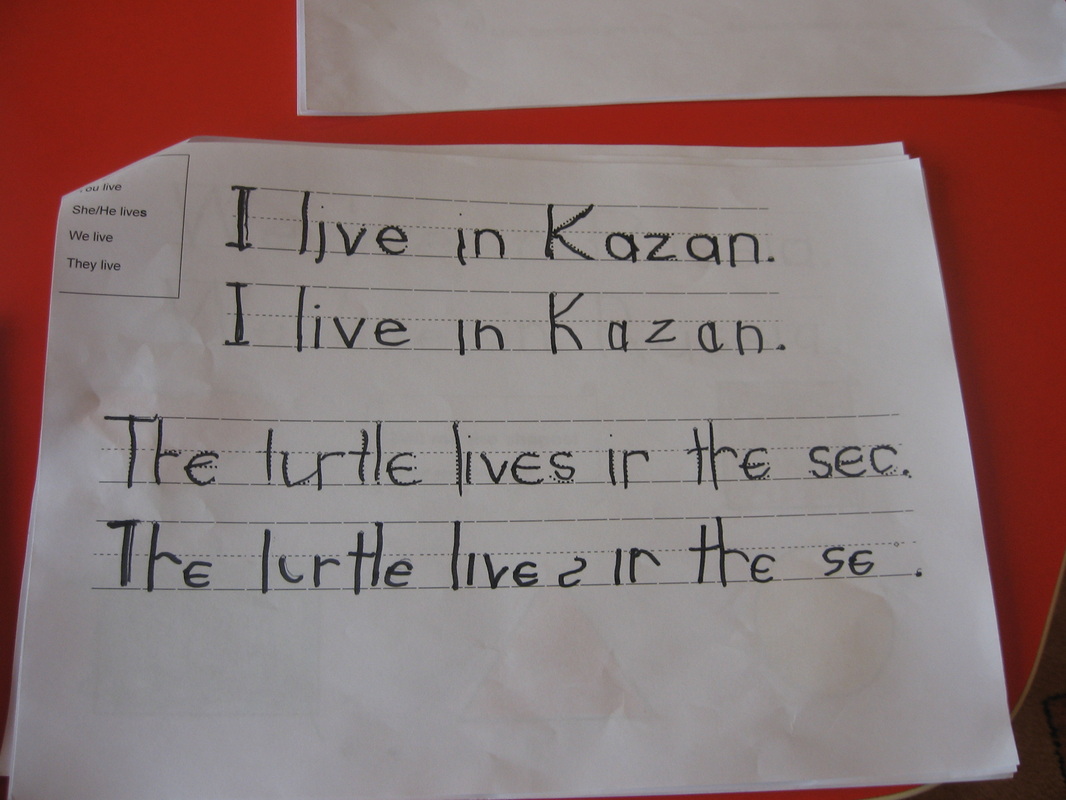
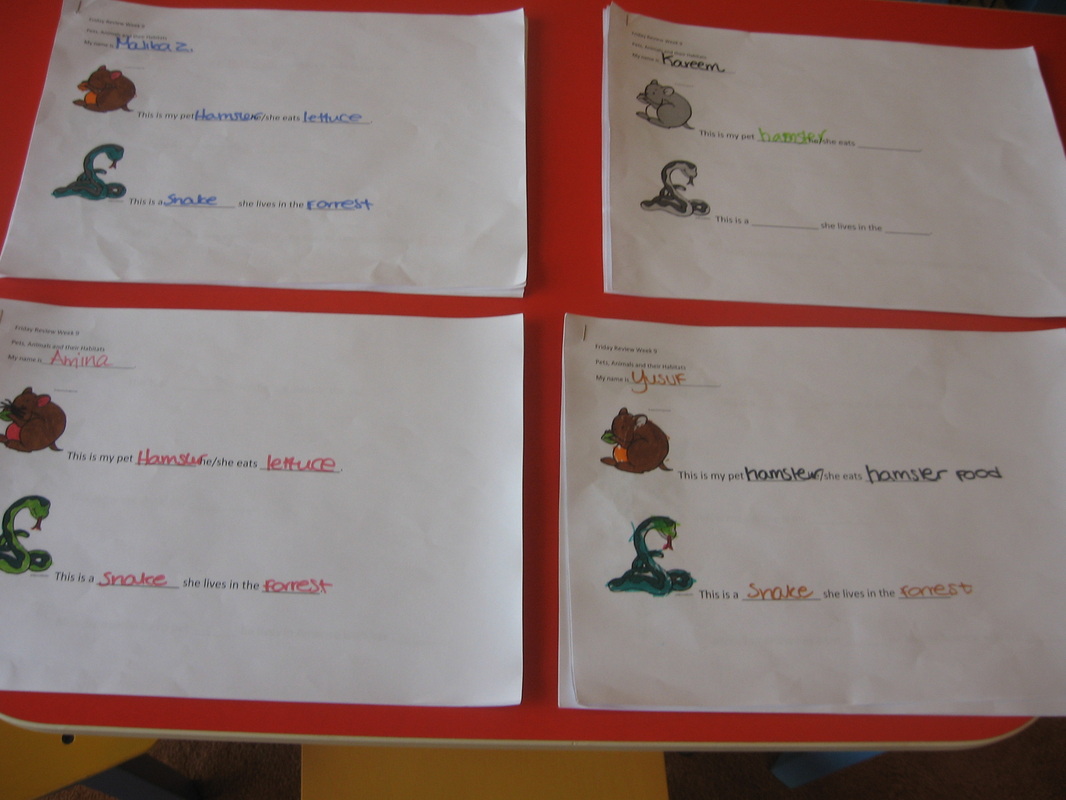
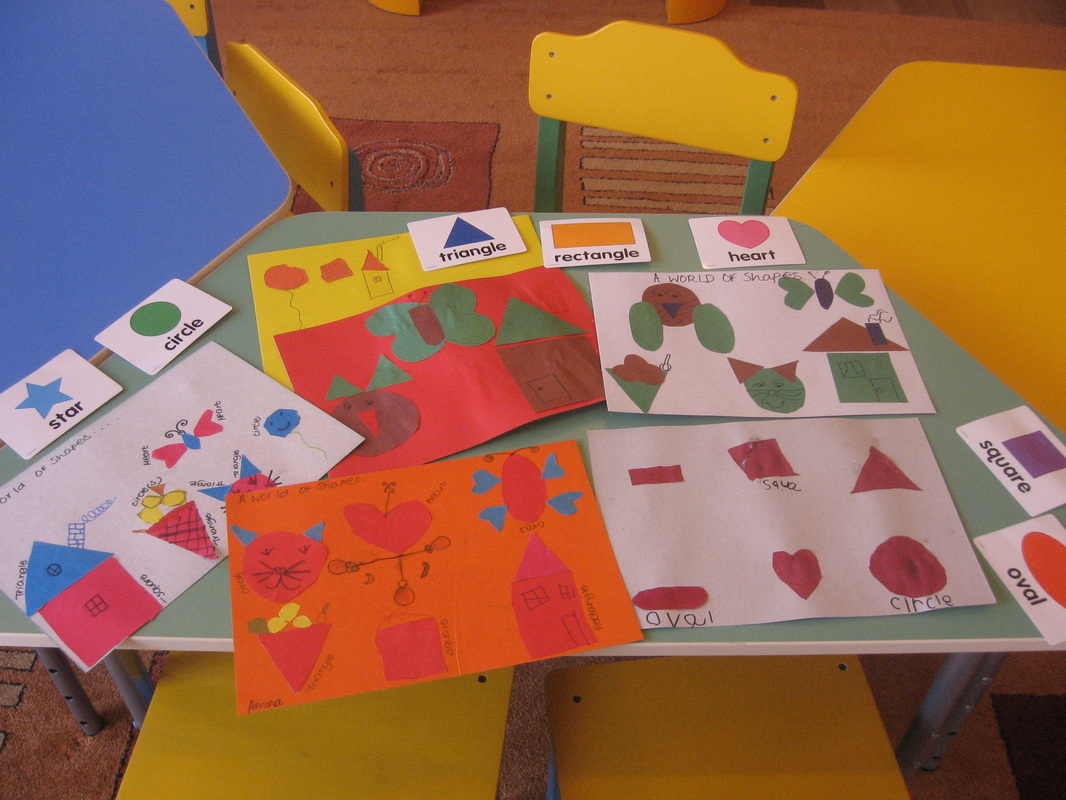
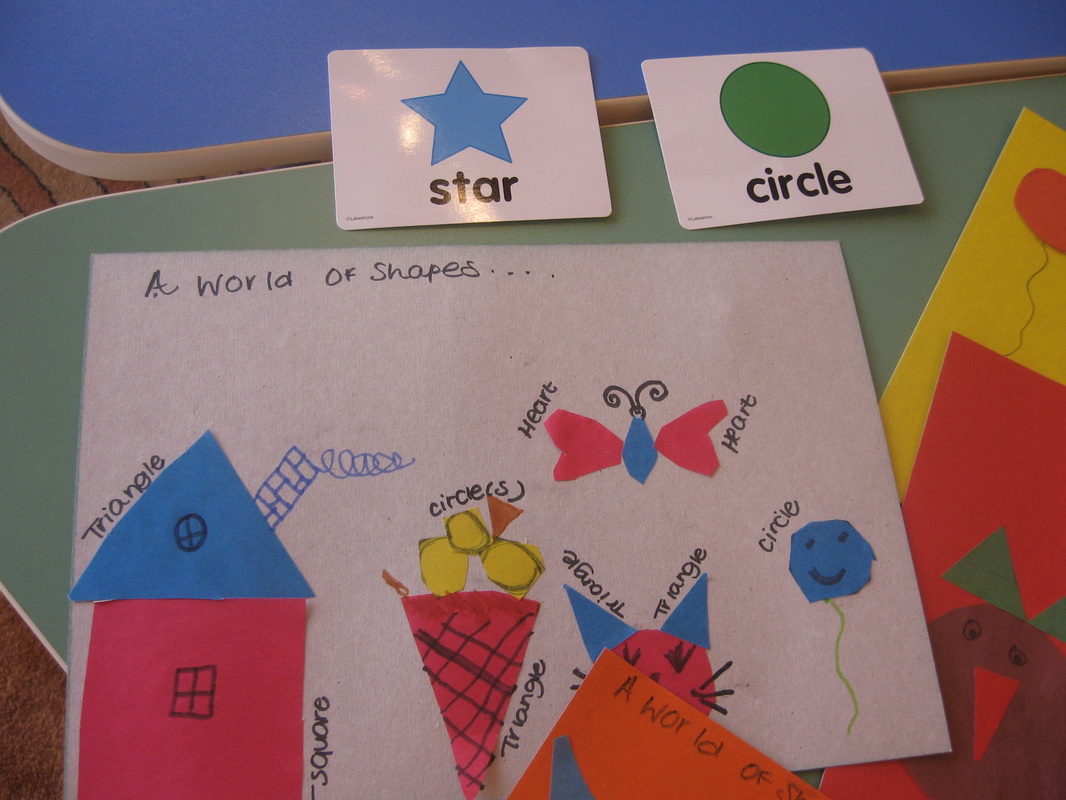
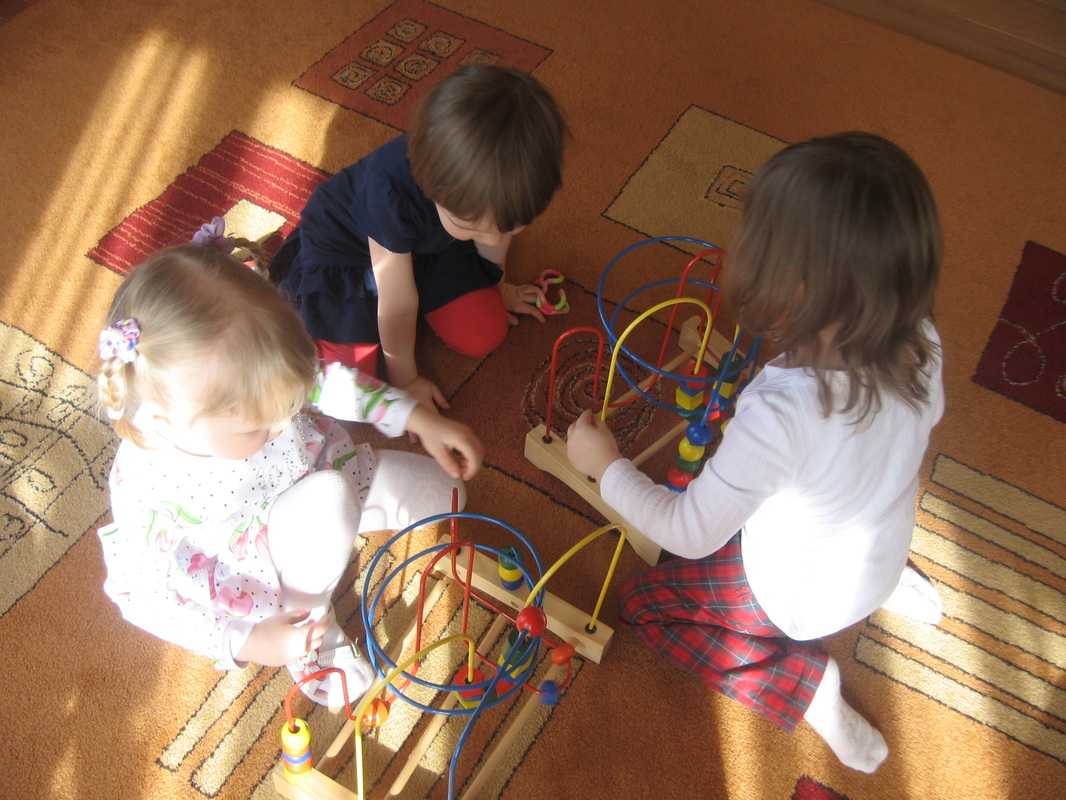
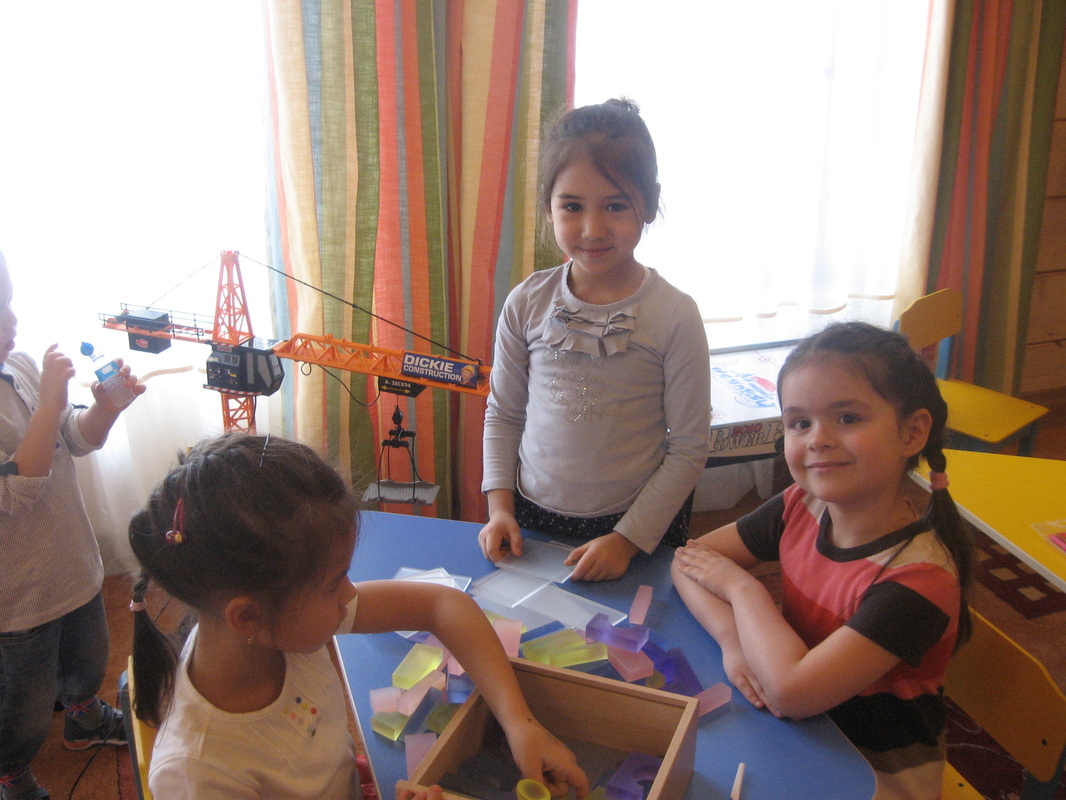
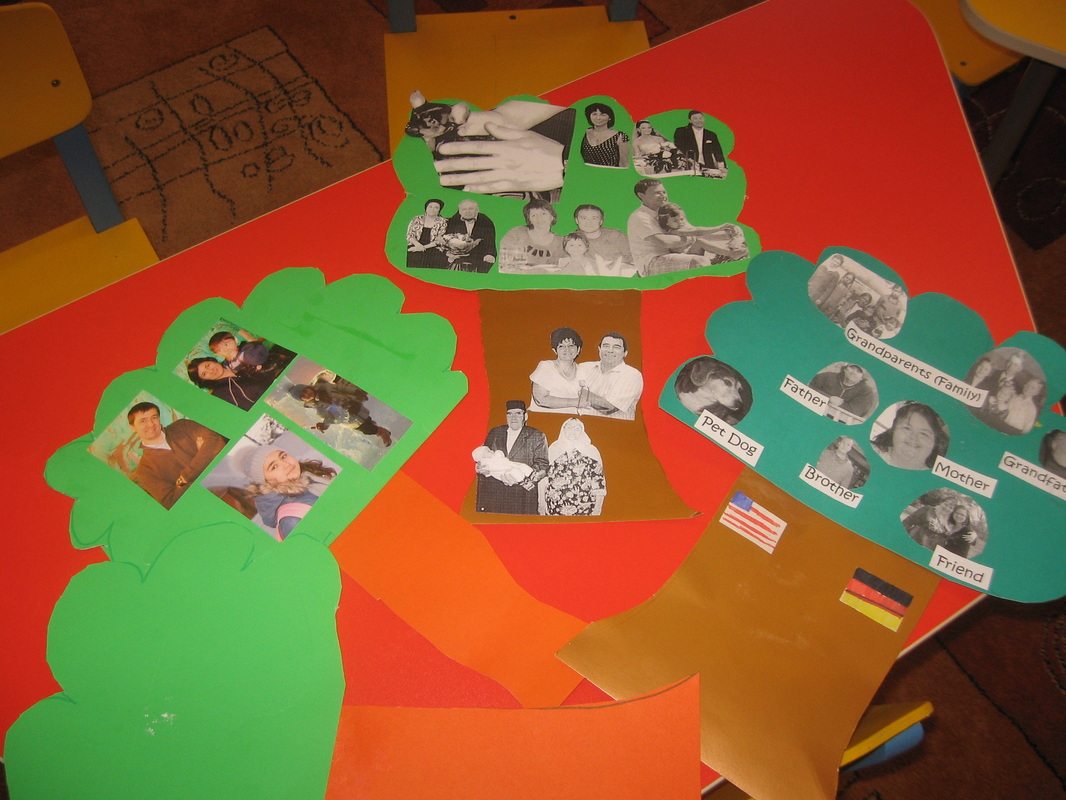
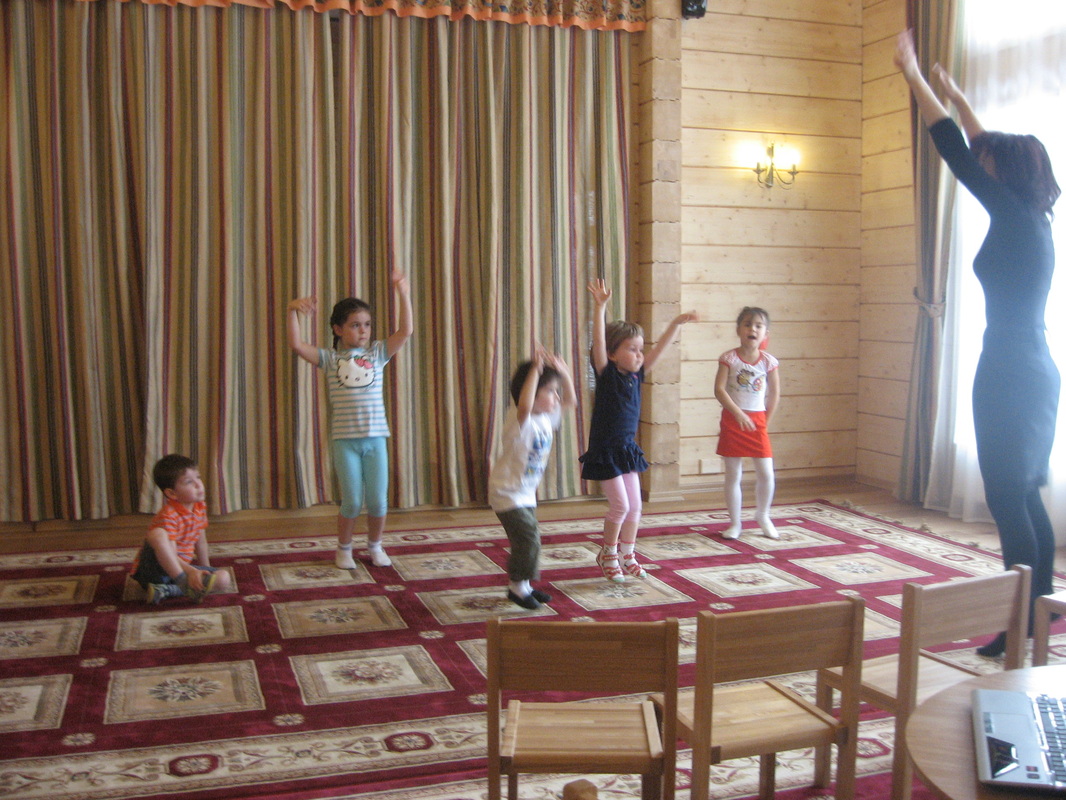
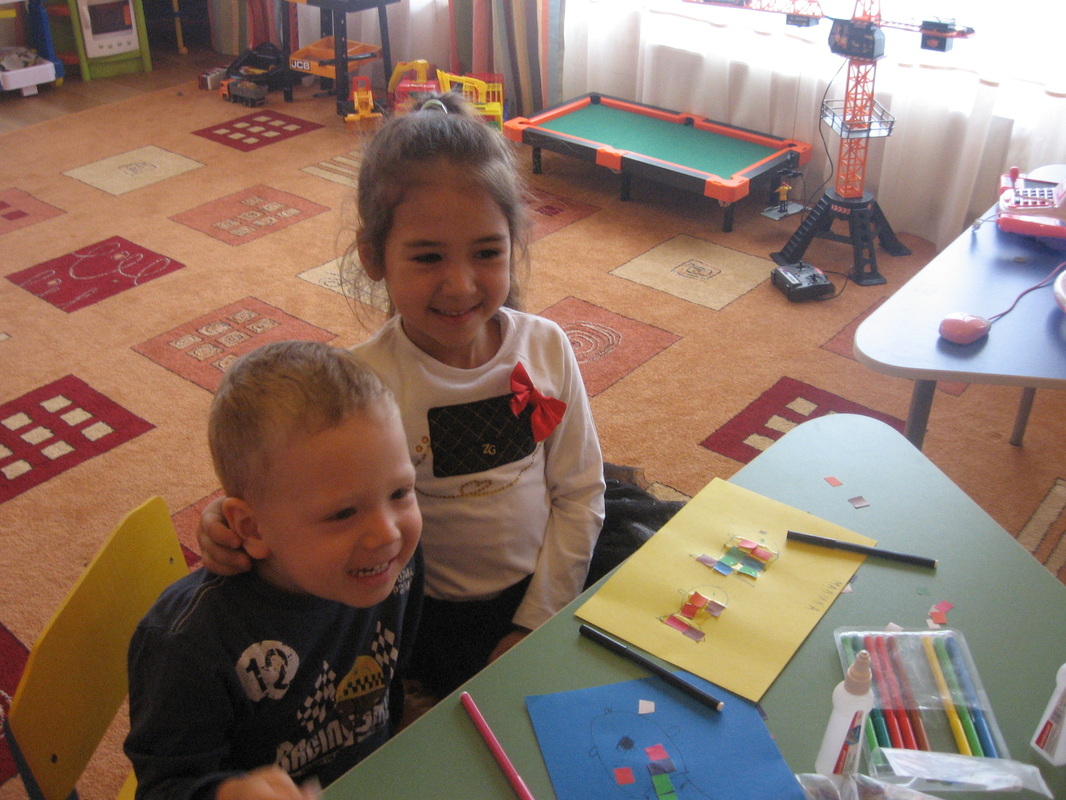
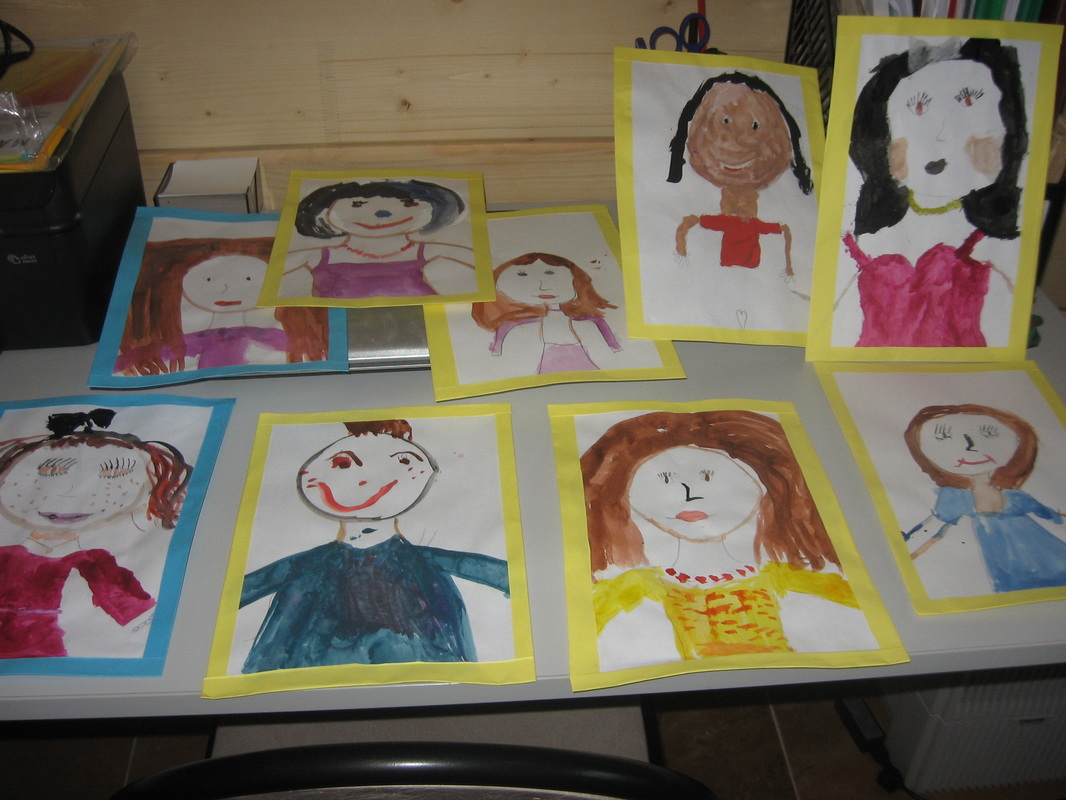
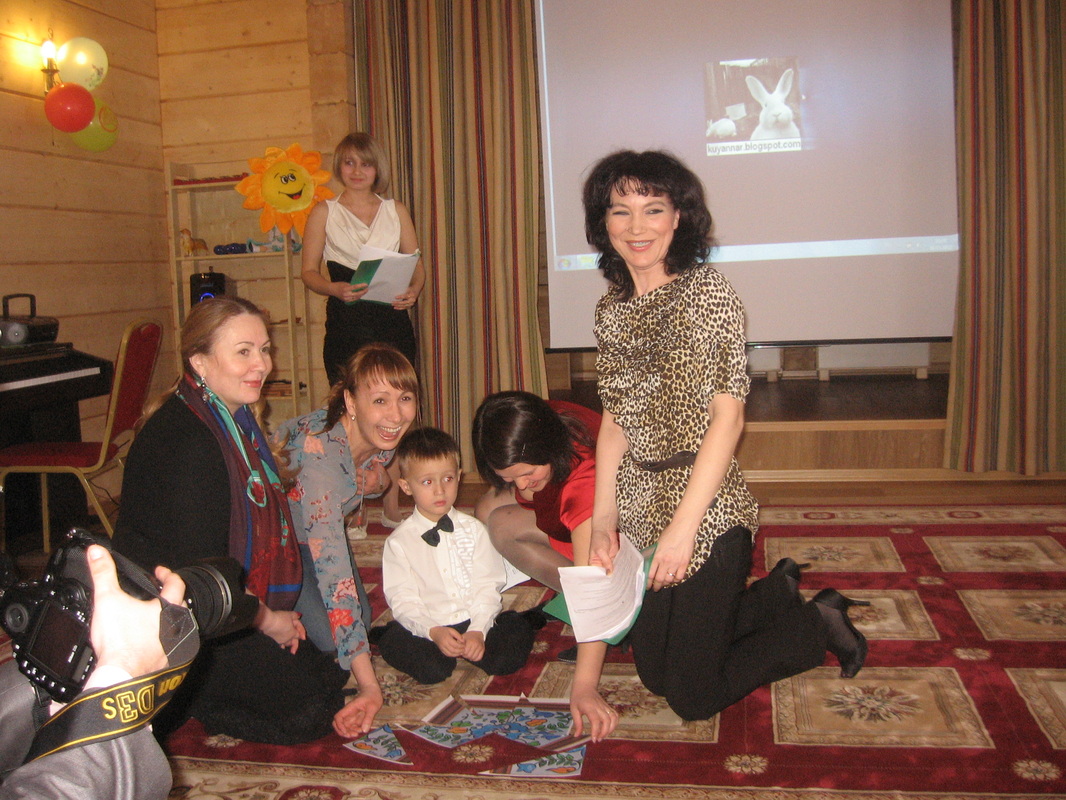
 RSS Feed
RSS Feed